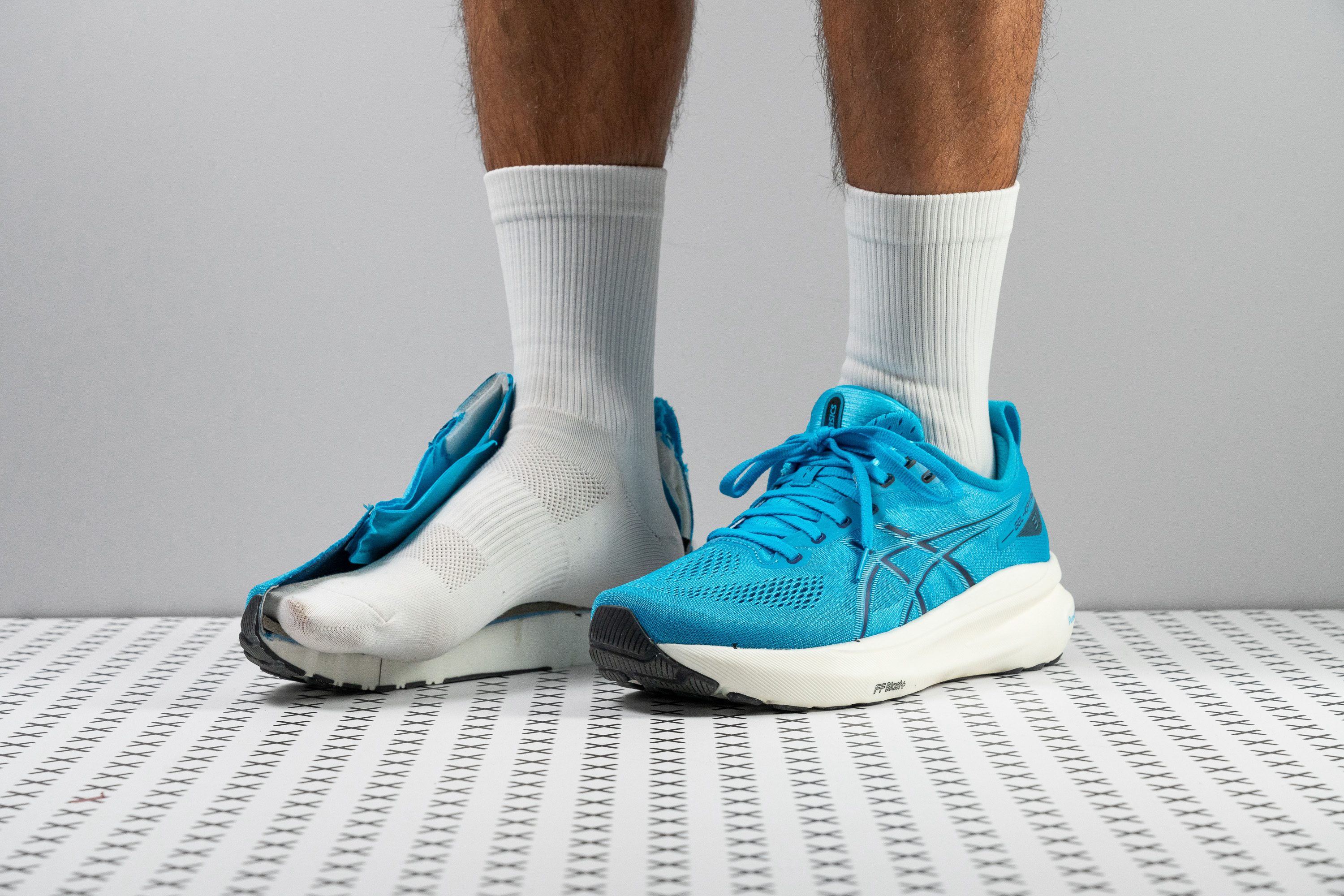Our verdict
- Top pick in best running shoes for flat feet (2024)
- Top pick in best stability running shoes (2024)
Pros
- Excellent stability
- Ideal for heel strikers
- Good breathability
- Comfortable and roomy upper
- Great for easy paces
- Maximalist cushioning
- A bit lighter than v30
- Plush FF Blast+ foam
- Superb traction
Cons
- Big and clunky
- Not versatile at all
- Low responsiveness
Audience verdict
- Top 27% in road running shoes
- Top 21% in stability running shoes
- Top 9% most popular running shoes
Comparison
The most similar running shoes compared
+ + Add a shoe | |||||
|---|---|---|---|---|---|
| Audience score | 89 Great! | 80 Good! | 88 Great! | 83 Good! | |
| Price | £180 | £110 | £160 | £180 | |
| Pace | Daily running | Daily running | Daily running | Daily running | |
| Shock absorption | High | High | - | High | |
| Energy return | Low | Moderate | - | Low | |
| Traction | High | High | - | High | |
| Arch support | Stability | Stability | Stability | Stability | |
| Weight lab Weight brand | 10.4 oz / 295g 11 oz / 311g | 8.1 oz / 231g 8 oz / 228g | 11.6 oz / 329g 11.8 oz / 334g | 10.4 oz / 295g 10.7 oz / 304g | |
| Lightweight | ✗ | ✓ | ✗ | ✗ | |
| Drop lab Drop brand | 11.5 mm 10.0 mm | 9.4 mm 5.0 mm | 7.2 mm 8.0 mm | 9.3 mm 8.0 mm | |
| Strike pattern | Heel | HeelMid/forefoot | HeelMid/forefoot | HeelMid/forefoot | |
| Size | True to size | Slightly small | Slightly small | True to size | |
| Midsole softness | Soft | Soft | Balanced | Balanced | |
| Difference in midsole softness in cold | Normal | Big | Normal | Small | |
| Toebox durability | Good | Bad | Decent | Good | |
| Heel padding durability | Good | Decent | Bad | Good | |
| Outsole durability | Decent | Bad | Good | Good | |
| Breathability | Moderate | Breathable | Moderate | Moderate | |
| Width / fit | Wide | Narrow | Medium | Medium | |
| Toebox width | Medium | Narrow | Wide | Medium | |
| Stiffness | Moderate | Moderate | Stiff | Moderate | |
| Torsional rigidity | Stiff | Stiff | Stiff | Stiff | |
| Heel counter stiffness | Stiff | Stiff | Stiff | Stiff | |
| Rocker | ✗ | ✓ | ✗ | ✗ | |
| Heel lab Heel brand | 39.3 mm 40.0 mm | 36.0 mm 33.0 mm | 39.1 mm 41.0 mm | 39.9 mm 40.0 mm | |
| Forefoot lab Forefoot brand | 27.8 mm 30.0 mm | 26.6 mm 28.0 mm | 31.9 mm 33.0 mm | 30.6 mm 32.0 mm | |
| Widths available | NormalWideX-Wide | NormalWide | NormalWide | NormalWideX-Wide | |
| Orthotic friendly | ✓ | ✓ | ✓ | ✓ | |
| Season | All seasons | SummerAll seasons | All seasons | All seasons | |
| Removable insole | ✓ | ✓ | ✓ | ✓ | |
| Ranking | #172 Top 26% | #322 Bottom 15% | #140 Top 37% | #280 Bottom 26% | |
| Popularity | #57 Top 9% | #56 Top 15% | #300 Bottom 21% | #21 Top 6% |
Who should buy
We tested the ASICS Kayano 31 in our lab and on various road conditions, and our findings reinforce its status as a top pick for runners seeking comfort and stability.
- We believe the Gel Kayano 31 is perfect for owners of the v30 looking for an upgrade—it's even better!
- Those seeking a shoe that provides stability and comfort at slower paces will find the Gel Kayano 31 ideal for its luxurious and supportive ride.
- Marathoners needing a stable workhorse for their easier days will appreciate how the Kayano 31 allows them to set an easy pace and forget about the shoes.
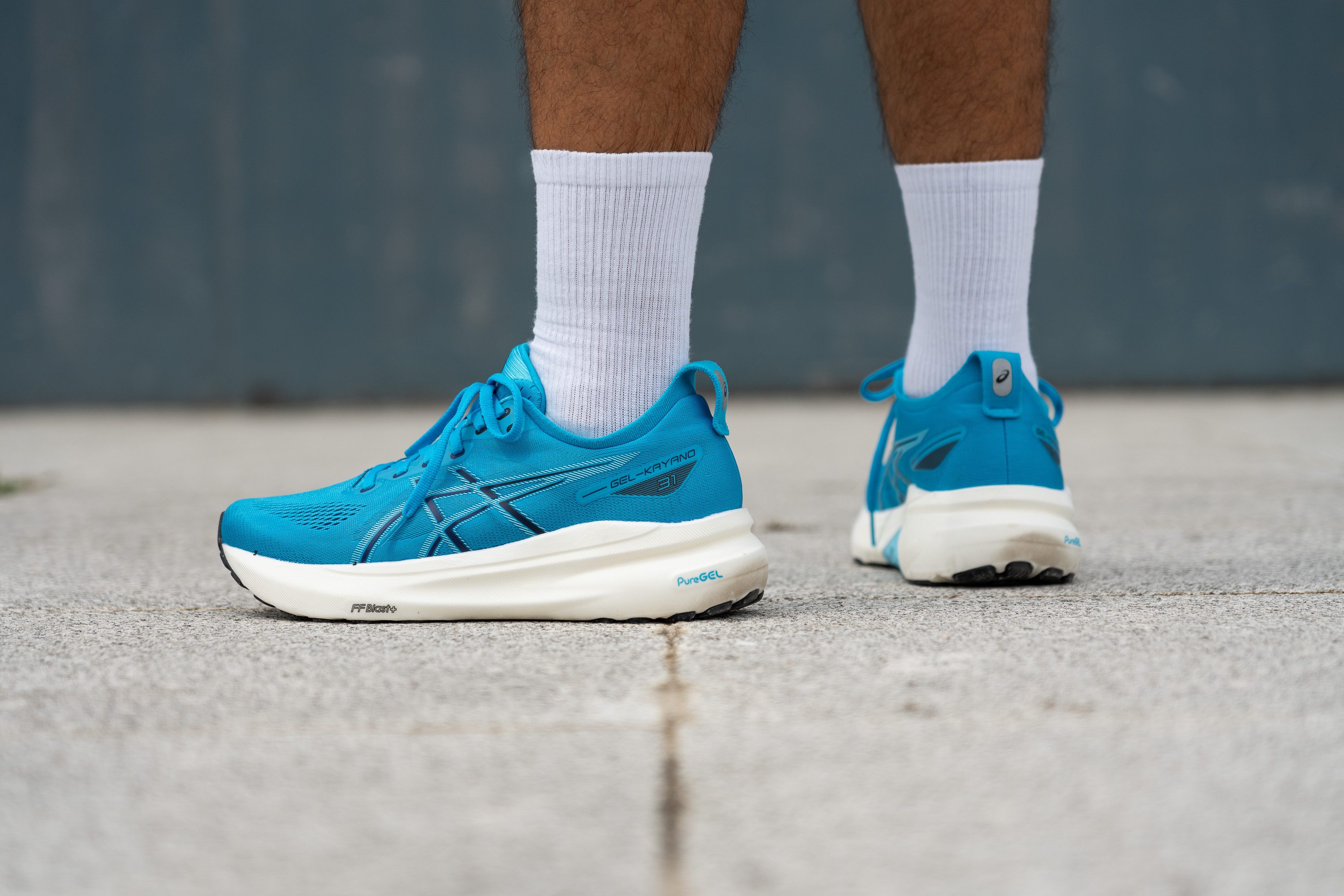
Who should NOT buy
While ASICS has crafted an impressive shoe, our tests revealed some challenges. In our lab, we discovered that models like the Hoka Arahi 7 and the ASICS GT 2000 12 provide similar stability but are more streamlined in terms of size and weight.
Furthermore, we found that this model might not be the best choice for runners who land on their forefoot due to its significant heel-to-toe drop. For those runners, we suggest considering the Saucony Tempus or the Hoka Gaviota 5, which offer a lower offset and might better align with their running style.
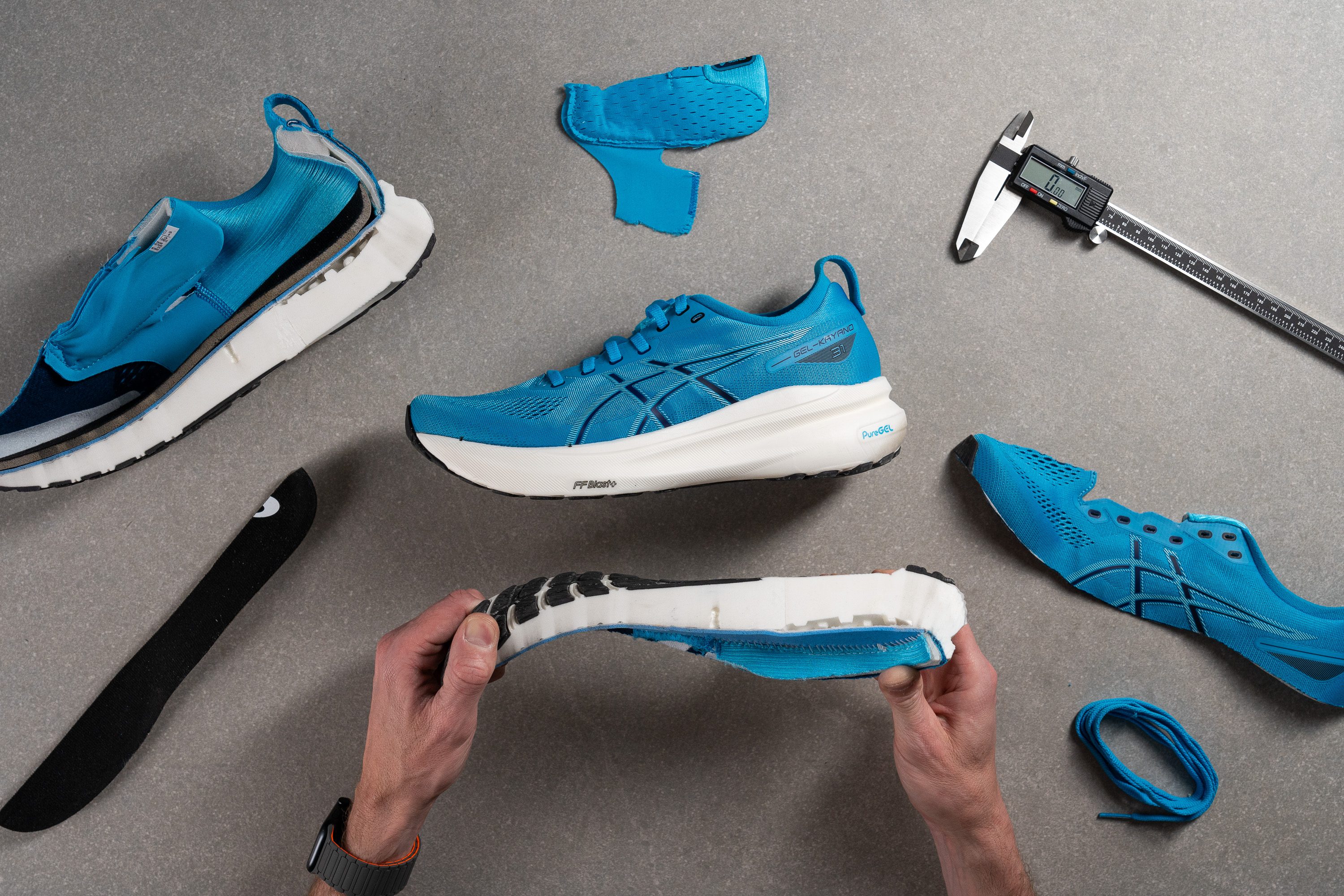
Cushioning
Shock absorption
The Kayano’s midsole keeps growing—and with it, shock absorption improves. In version 31, we measured 131 SA in the heel and 110 SA in the forefoot, offering plenty of joint-saving protection for heavier runners and long-run enthusiasts alike.
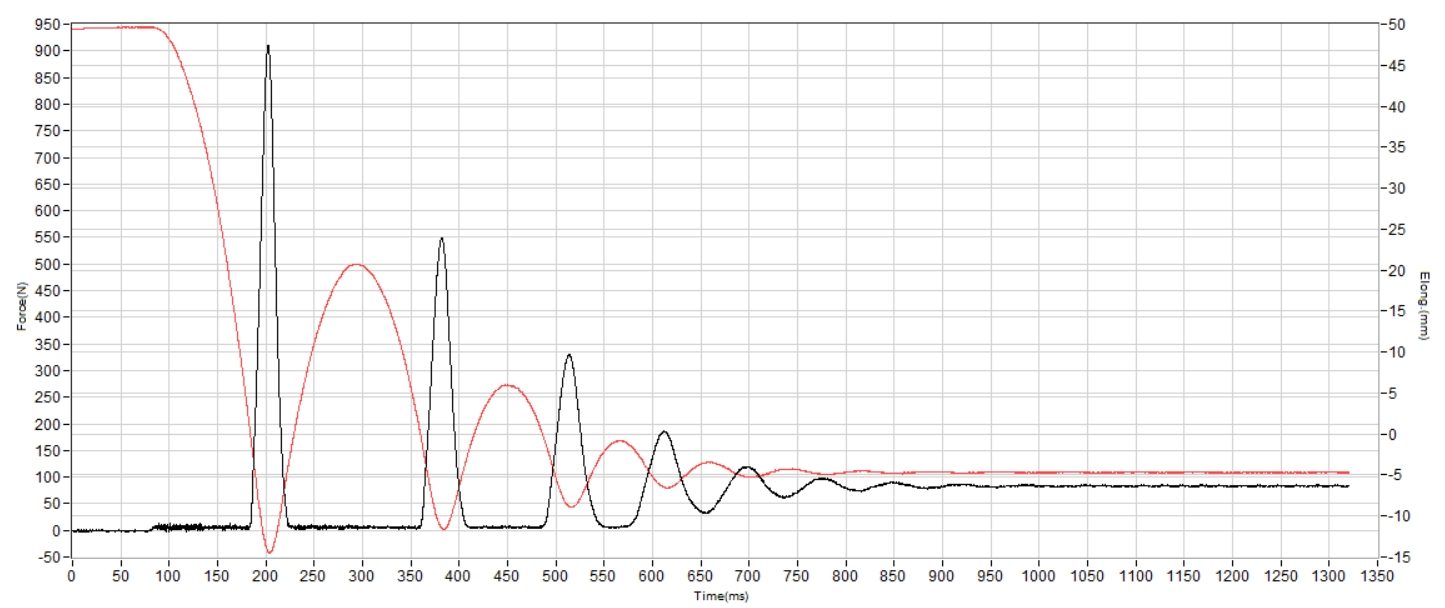
| Gel Kayano 31 | 131 SA |
| Average | 130 SA |
Energy return
We were really hoping this shoe would improve on the energy return of its predecessor, but with FF Blast+ still in the midsole, it delivers the same underwhelming bounce: just 49.2% in our ASTM F1976 test.
That’s clearly below average and even trails behind many budget-friendly options, which looks especially bad at the Kayano 31’s MSRP.
| Gel Kayano 31 | 49.2% |
| Average | 58.6% |
Heel stack
We recently used the term "maximalist," and that perfectly describes this shoe with its enormous 39.3 mm stack height. For us, it's a maximalist stability shoe, pure and simple.
We believe the Kayano 31 is ideal for heel strikers, offering a high drop coupled with substantial cushioning in this area, including a layer of PureGEL.
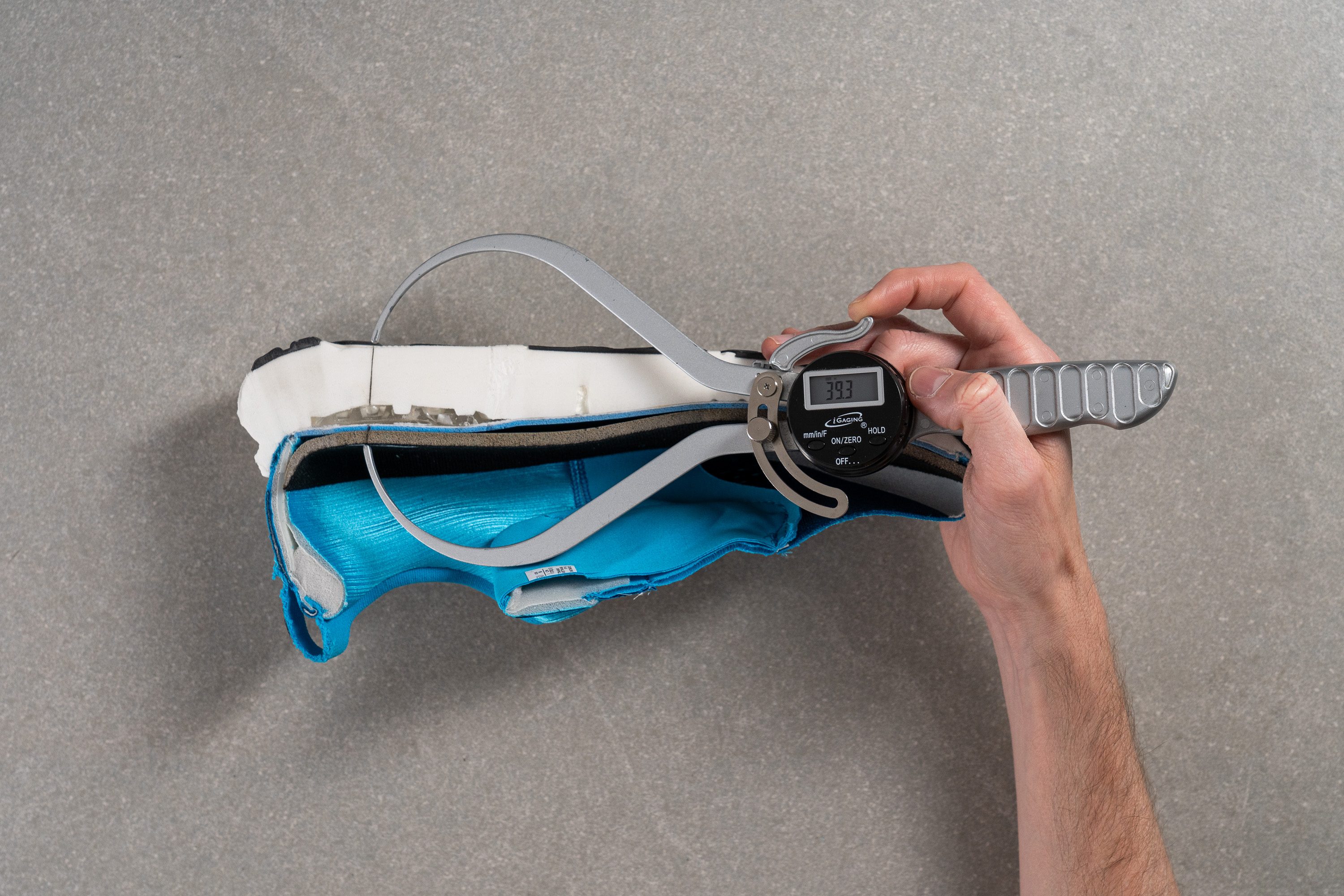
| Gel Kayano 31 | 39.3 mm |
| Average | 34.8 mm |
Forefoot stack
The forefoot is noticeably lower than the heel, feeling less towering, especially when striking with the forefoot. We confirmed our observations after measuring the Kayano 31, clocking a reading of 27.8 mm in this area.
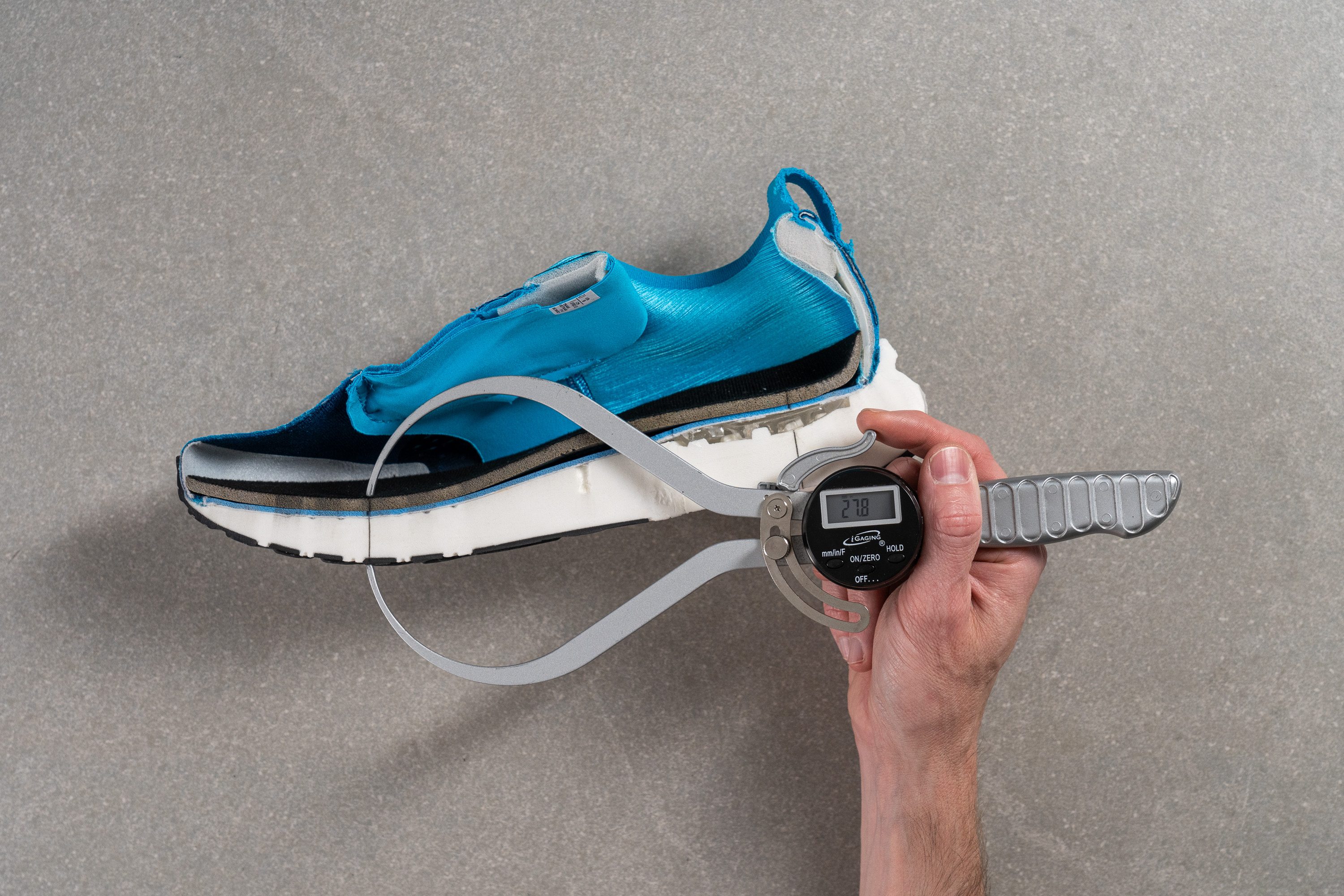
| Gel Kayano 31 | 27.8 mm |
| Average | 26.2 mm |
Drop
Our measurements show that the Gel Kayano 31 has a 11.5-mm drop, which is actually 1.5 mm more than what the brand advertises.
This minor discrepancy isn't a huge deal. In fact, it makes the shoe even better for heel strikers, while also offering a comfortable pick for midfoot strikers who want to reduce stress on their Achilles tendons and calves.
| Gel Kayano 31 | 11.5 mm |
| Average | 8.6 mm |
Midsole softness
ASICS is incorporating FF Blast+ ECO into all their high-end training shoes, including the Novablast 4 and Nimbus 26, and the Kayano. What was once a firm ride has transformed into a plush and compliant foam—take it or leave it.
To measure the softness, we used a Shore A durometer on the shoe cut in half, as it's the most reliable method to get an accurate measurement. The results showed a softness of 15.6 HA, slightly softer than the v30, maintaining its promise of a cloud-like yet stable experience.
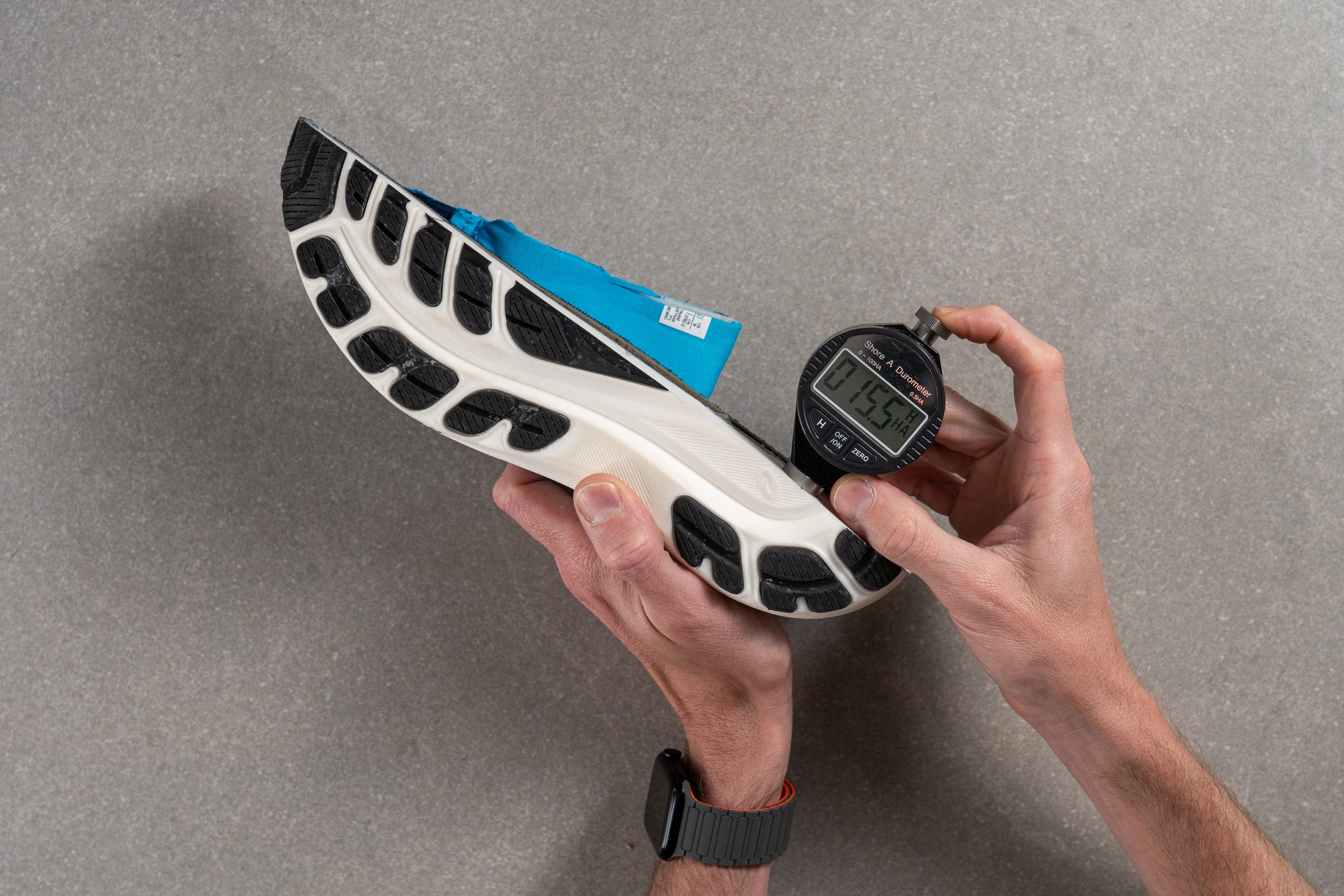
| Gel Kayano 31 | 15.6 HA |
| Average | 20.4 HA |
Rocker
We discovered that the Kayano 31 maintains its traditional non-rockered design, featuring a nearly flat profile from the heel to the beginning of the toe spring, as demonstrated in our video. This design is subtle and unobtrusive, and we really like it for a Kayano!
PureGEL
PureGEL is ASICS' updated take on their traditional GEL technology, which has been around for decades. This advanced version is strategically embedded within the foam at the heel of the shoe.
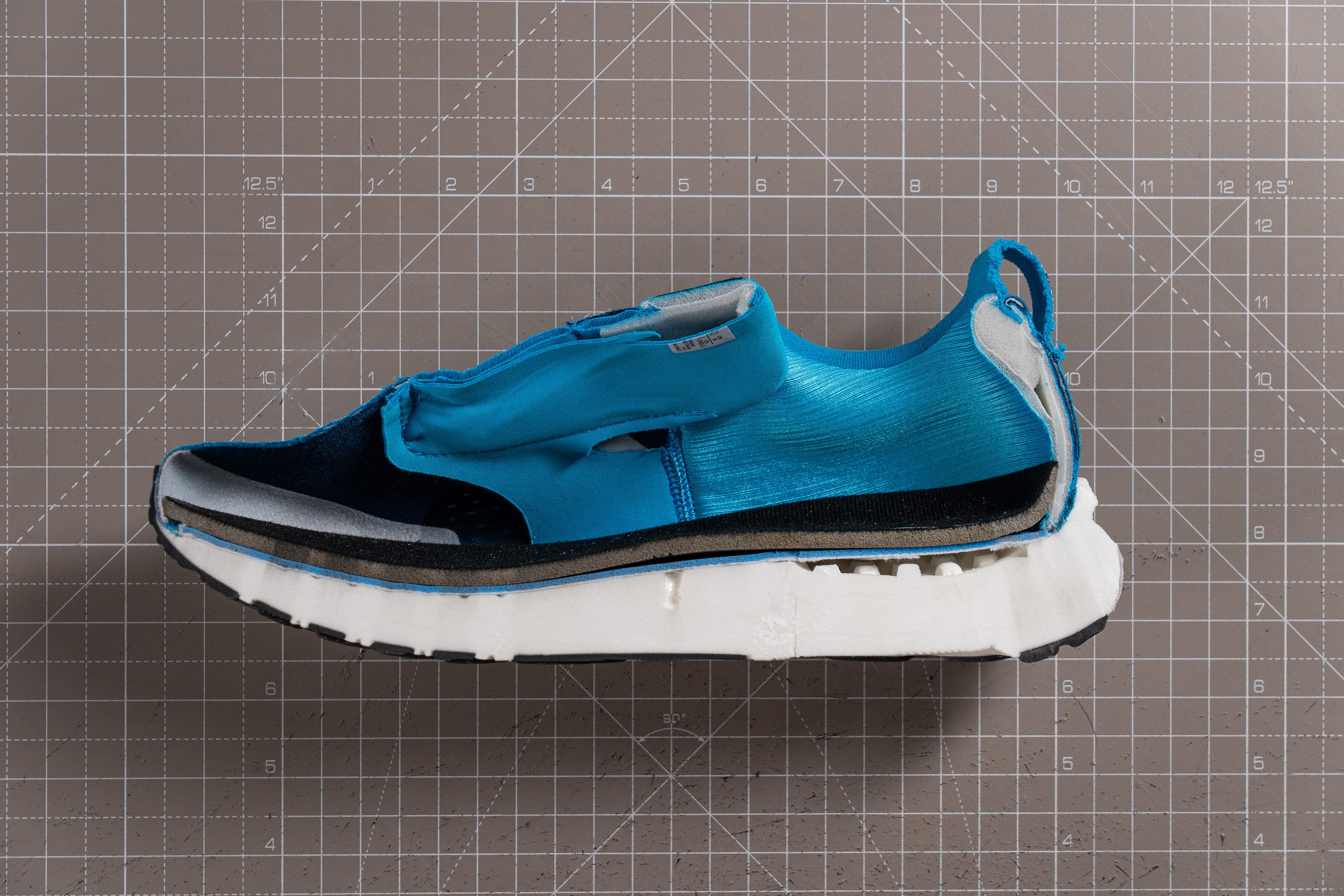
It's designed specifically to ensure exceptionally soft landings, particularly beneficial for heel strikers. In our testing, we found that it indeed provides a highly comfortable impact. However, it slightly lowers energy return, emphasising that its primary focus is on maximising comfort.
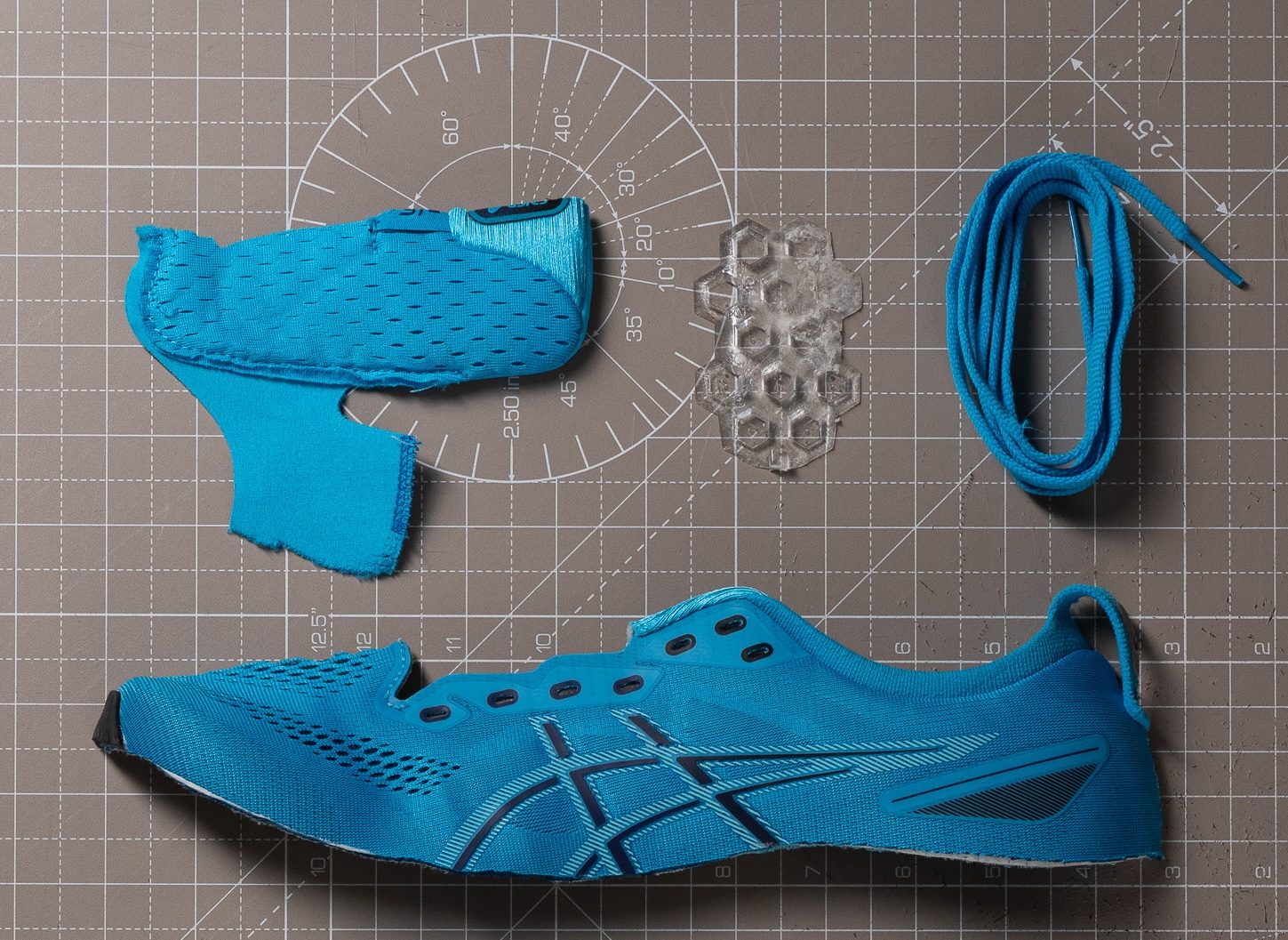
Size and fit
Size
ASICS Gel Kayano 31 fits true to size (267 votes).
Internal length
| Gel Kayano 31 | 275.0 mm |
| Average | 269.4 mm |
Width / Fit
Our measurements revealed that the Kayano 31 features a wider upper, reaching an impressive 98.9 mm at the broadest section of our custom-made gel mould.
This result places the Kayano noticeably ahead of most competitors in the premium stability training market. And based on our findings, this accommodating design enhances comfort and effectively supports runners with 2E+ feet, more than any previous iteration in the Kayano series!
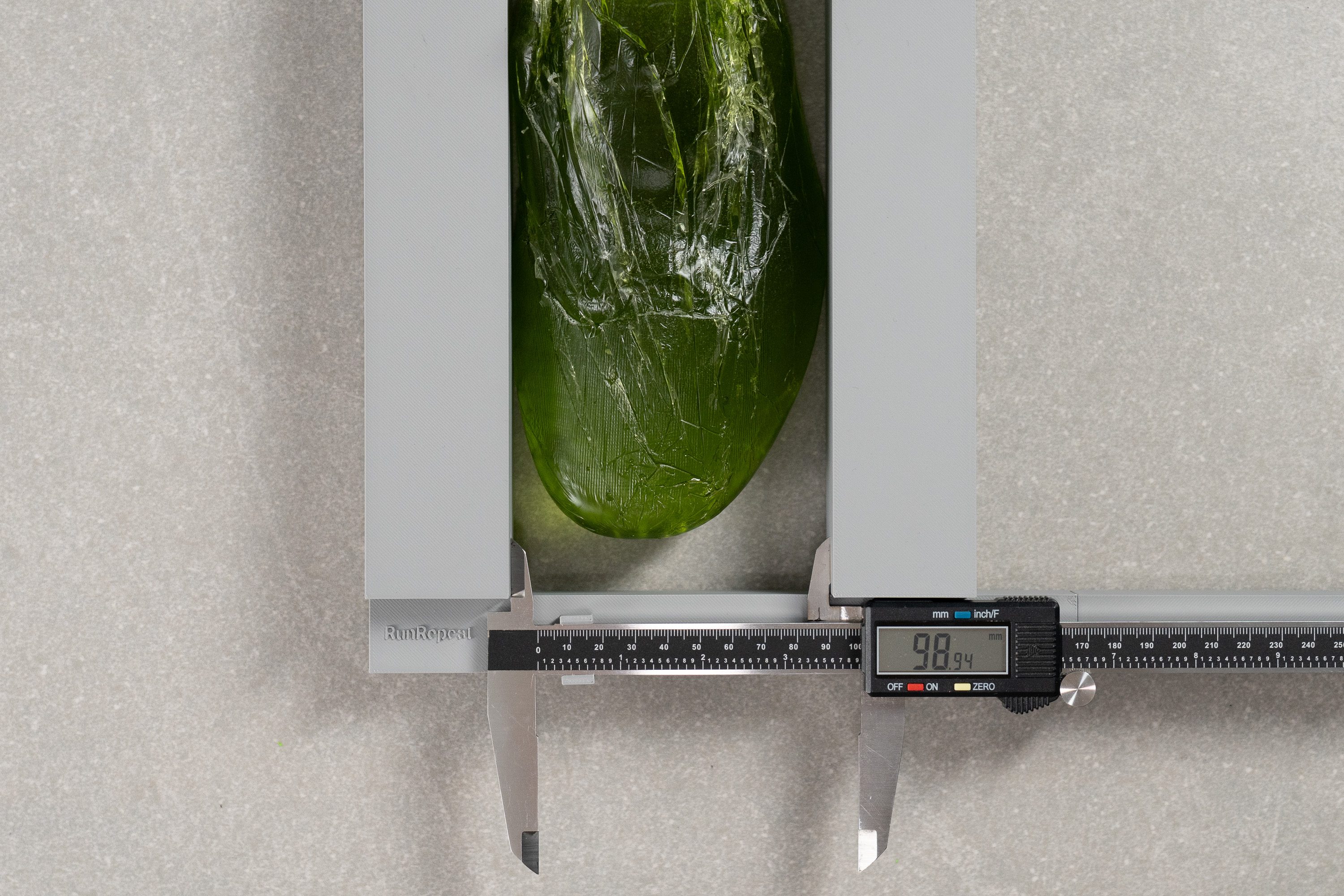
| Gel Kayano 31 | 98.9 mm |
| Average | 95.1 mm |
Toebox width
We conducted a second measurement in the big toe area of the gel mould to assess the taper of the toebox, and our digital calliper recorded 74.8 mm. While not as wide-foot-friendly as before, this shape still provides ample room for most individuals.
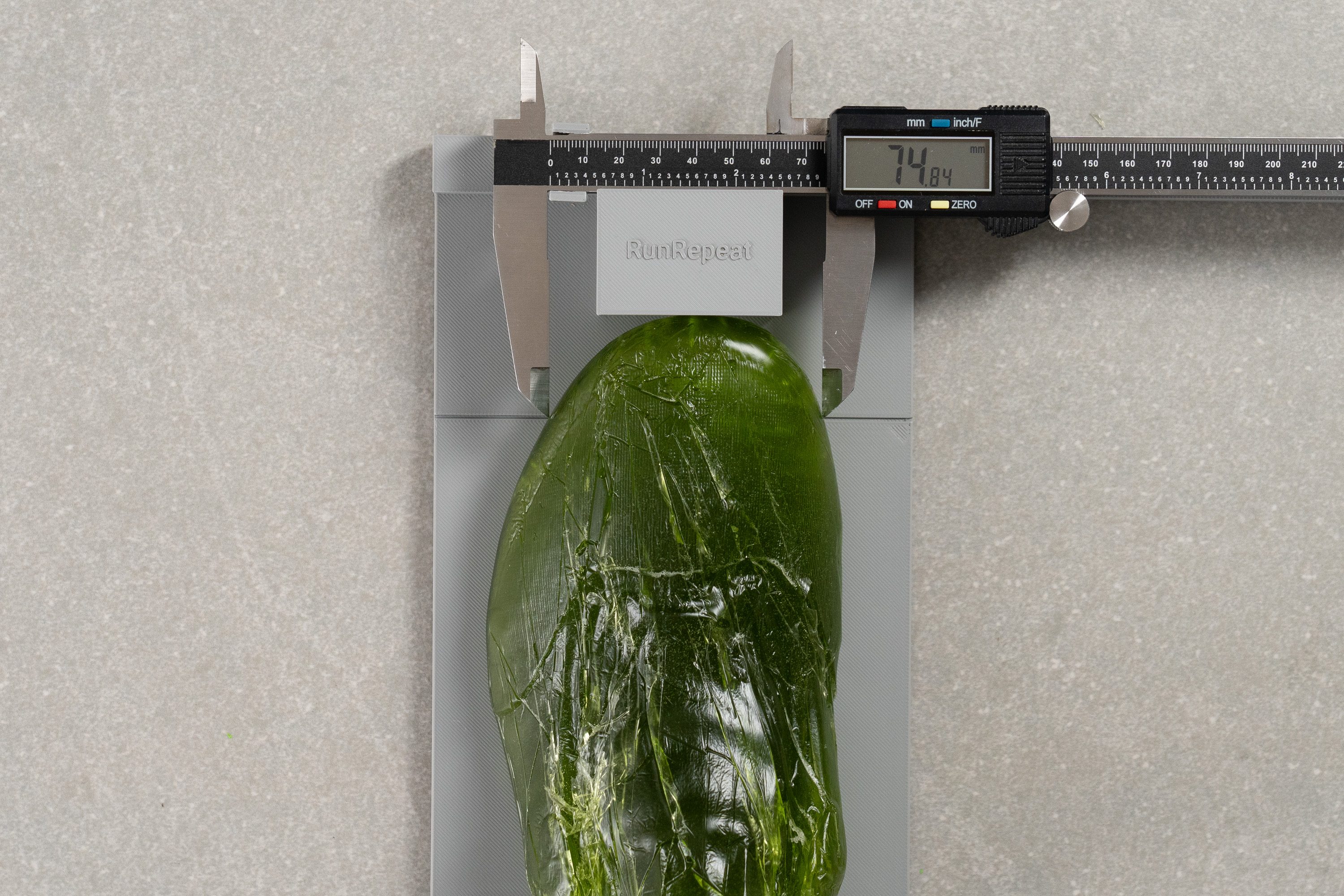
| Gel Kayano 31 | 74.8 mm |
| Average | 73.3 mm |
Toebox height
In terms of height, we were satisfied, as the toebox measured 27.2 mm. This average result should suit most runners well, especially since the upper features a high-quality, slightly-giving material.
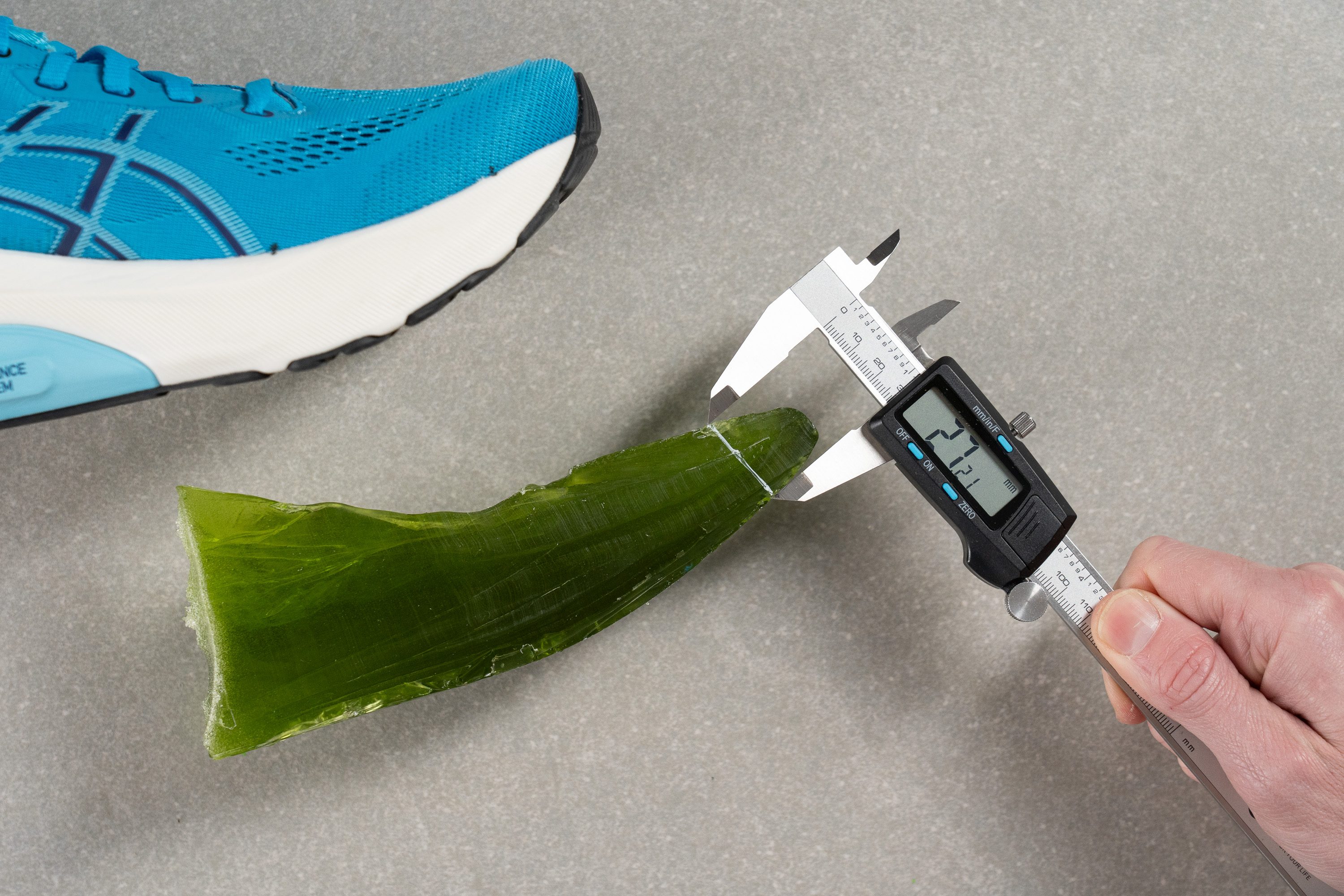
| Gel Kayano 31 | 27.2 mm |
| Average | 27.0 mm |
Traction / Grip
Traction test
The ASICS Gel Kayano 31 blew us away in the lab with a score of 0.83. That’s a grip-loaded, rain-ready performance and easily places it among the highest-scoring shoes we’ve ever tested. And we’ve tested plenty.
You can expect top traction even in heavy downpours—conditions where most shoes start to fade. It’s also a major leap over the Kayano 30, which hovered closer to the average in this exact same test.
| Gel Kayano 31 | 0.83 |
| Average | 0.49 |
Outsole design
This outsole follows a similar design approach to v30, keeping the rubber segmented to cut weight while still protecting high-impact zones. ASICS placed thick pods across the heel, forefoot, and especially the medial side, offering solid durability for pronators.
Compared to the previous version, this one keeps the same protective philosophy but is slightly less aggressive in the forefoot and lateral heel. It still prioritises medial support, but it's clear to us that ASICS opted to sacrifice a bit of outsole coverage to reduce weight on this edition.
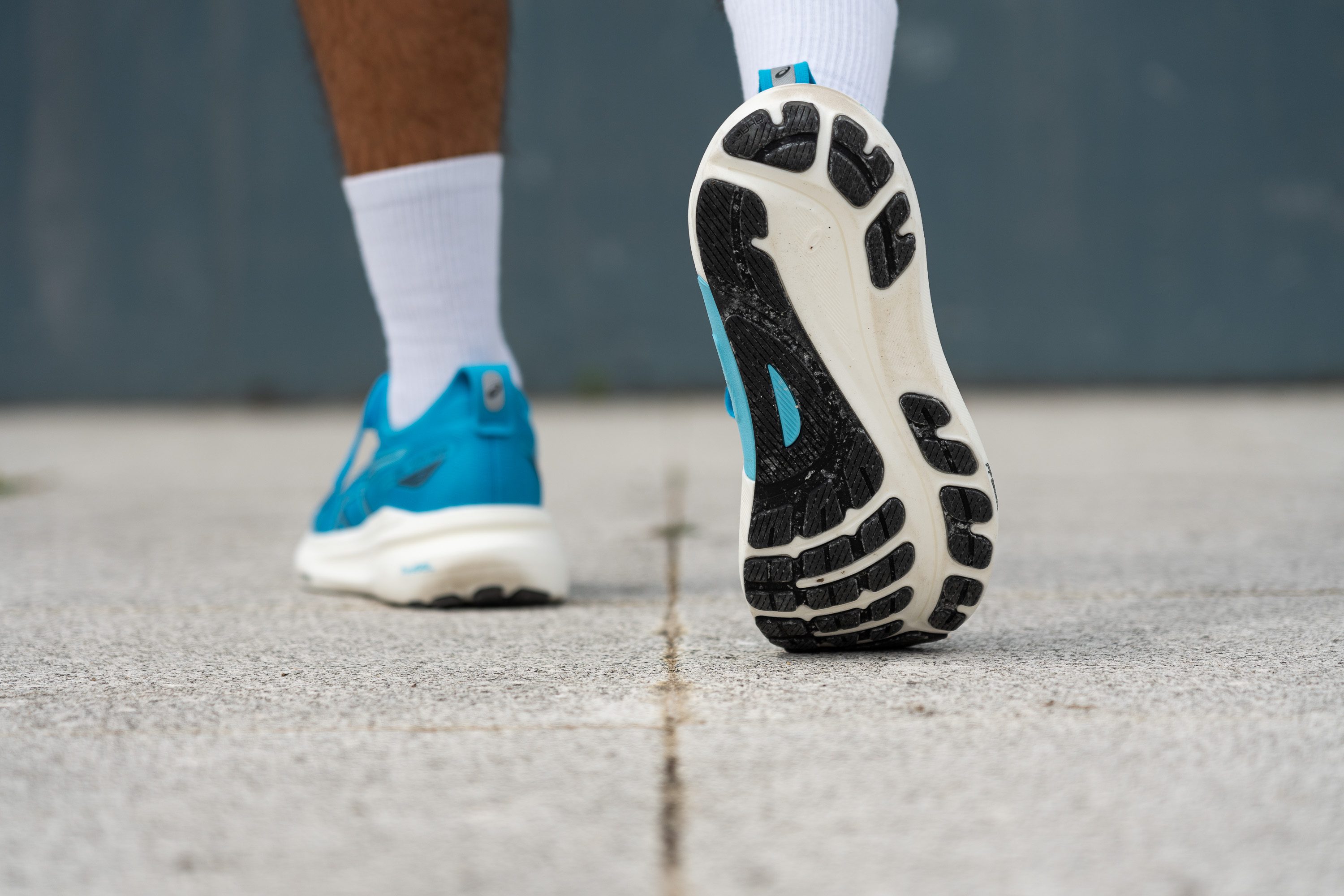
Flexibility / Stiffness
During our tests, we discovered that it only requires 15.8N of force to bend the Gel Kayano 31 to a 30-degree angle.
While it's not exceedingly flexible, we consider this a favourable result, especially given the substantial FF Blast+ midsole. Despite the increased foam, which typically reduces flexibility, ASICS has managed to maintain average flexibility with the strategic outsole cutouts!
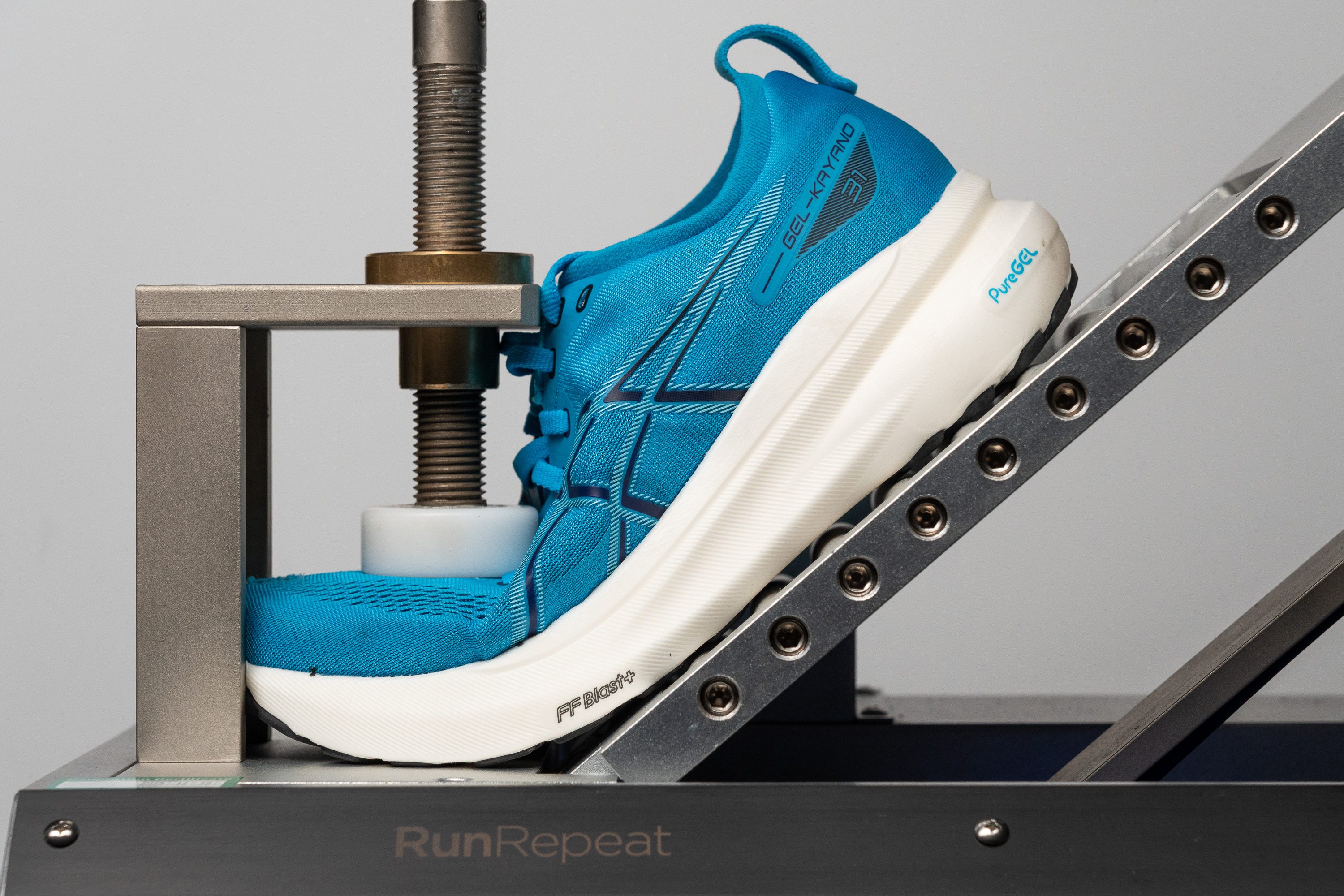
| Gel Kayano 31 | 15.8N |
| Average | 15.3N |
Stiffness in cold (%)
After chilling the shoe in the freezer for 20 minutes, we conducted another test. We noted that it became 34.8% stiffer—a moderate increase that was clearly perceptible even while walking in the shoe, yet it's not concerning at all.
| Gel Kayano 31 | 35% |
| Average | 33% |
Weight
Let's be honest—the Kayano series has always been on the heavier side, and it probably always will be. However, stability workhorses are getting lighter thanks to modern foams, and ASICS really needs to start reducing the Kayano's weight, especially after last year's maximalist redesign.
With the latest update, we saw a glimpse of progress, as ASICS managed to trim the weight from 10.7 oz to 10.4 oz (295g), a change we're pleased to see. Nevertheless, we're eager to see the Kayano break the 10-ounce barrier, and we're confident that ASICS has the expertise to achieve it. Implementing a tougher, thinner rubber could be the key for version 32.
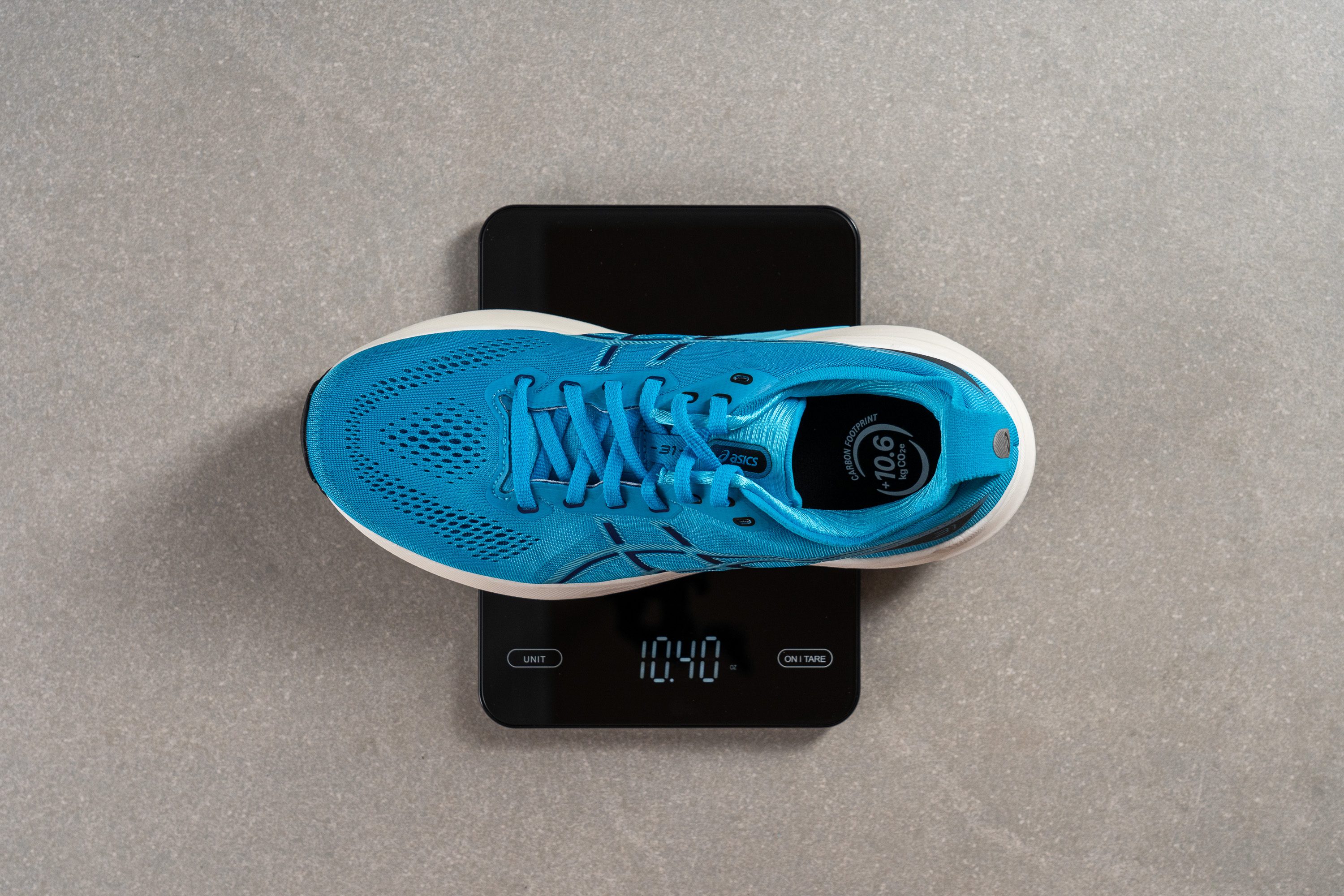
| Gel Kayano 31 | 10.4 oz (295g) |
| Average | 9.3 oz (264g) |
Breathability
The 30th edition of the Kayano impressed us with its 5-out-of-5, well-ventilated upper, setting high expectations that ASICS would continue this trend in version 31. And upon unboxing this updated model, it truly looked promising.
However, after testing the upper with our smoke-pumping machine, we noted some minor changes that led us to assign a rating of 4/5—still great for summer, and better than a 5/5 if you plan to run with them in freezing temperatures.
By shining a powerful light through the sliced upper, we found numerous ventilation holes designed to provide superior airflow in the toebox, offsetting the reduced ventilation in the midfoot and heel areas which require more structural support in a Kayano.
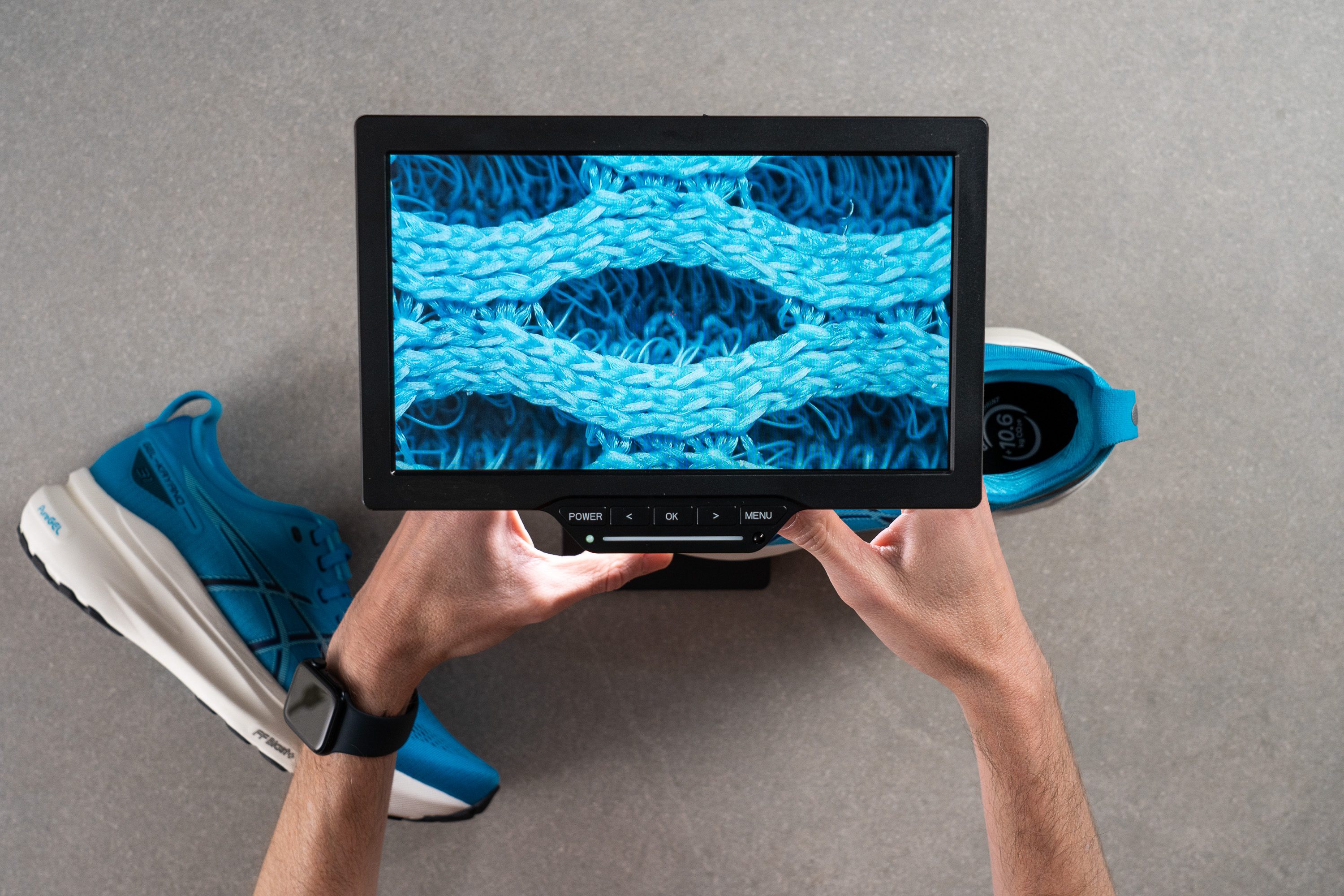
Upon examining the engineered mesh upper under a microscope, we quickly understood why it received a 4/5 rating. Despite the abundance of holes, a secondary layer beneath them restricts full airflow.
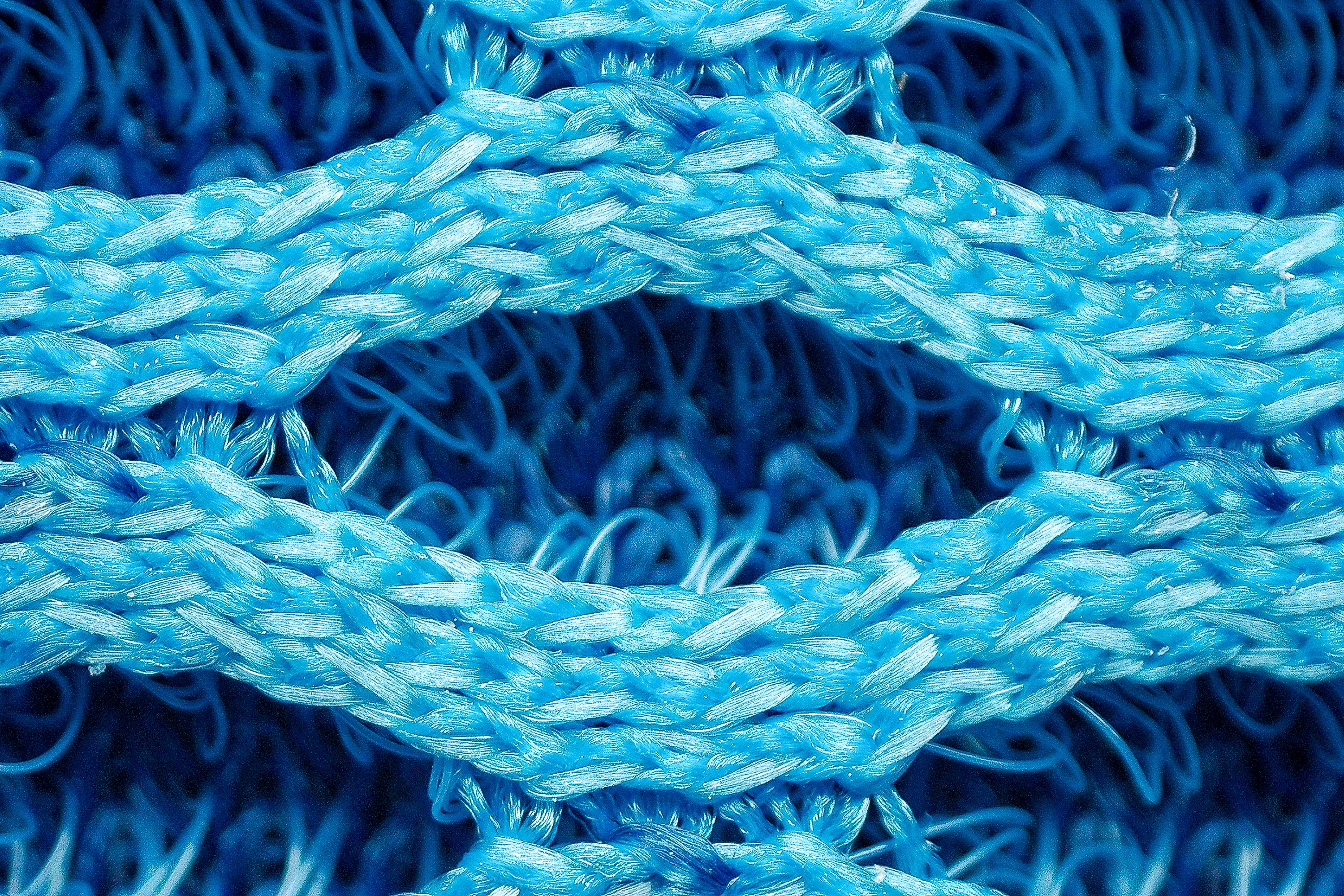
Yamashita-san, the shoe designer who succeeded Kayano-san at ASICS Japan, clearly thinks that comfort is a priority! Thus, the upper is plush and cosy, although this design choice slightly reduces airflow.
| Gel Kayano 31 | 4 |
| Average | 3.7 |
Stability
Lateral stability test
If someone had told us a few years ago that stability shoes would evolve to look like the Kayano 31, even us might have doubted them. Yet here we are, with a shoe that offers outstanding stability while resembling just a massive daily trainer.
ASICS incorporates all their expertise in non-intrusive support features into this model. This includes midsole sidewalls, an expansive chassis, the 4D Guidance System, a higher arch, a rigid heel counter, and a gentle posterior heel bevel—all designed to provide stability without the need for intrusive, old-school methods.
Torsional rigidity
We just spoke about the rigidity of the shoe, and indeed, from the first attempt to twist and bend it, we noticed its stiffness—we spectacularly failed to make it flex. That earns a 4/5 from us.
| Gel Kayano 31 | 4 |
| Average | 3.5 |
Heel counter stiffness
The heel counter is also very rigid, although ASICS kept it slightly softer than competitors in the stability category, like the all-rounder Brooks Glycerin GTS 21. We rated it another solid 4/5.
We tested during our runs that the heel counter provides excellent support without compromising comfort that much, striking a great balance for stability.
| Gel Kayano 31 | 4 |
| Average | 2.9 |
Midsole width - forefoot
As we just mentioned, if there's one thing that has changed dramatically in recent years regarding stability shoes, it's their size. We've moved from regular-sized shoes to true behemoths.
The Kayano 31 exemplifies this shift, measuring a whopping 122.1 mm in the forefoot. We found that this massive size creates a reassuring sense of stability when landing and transitioning to the toe-off.
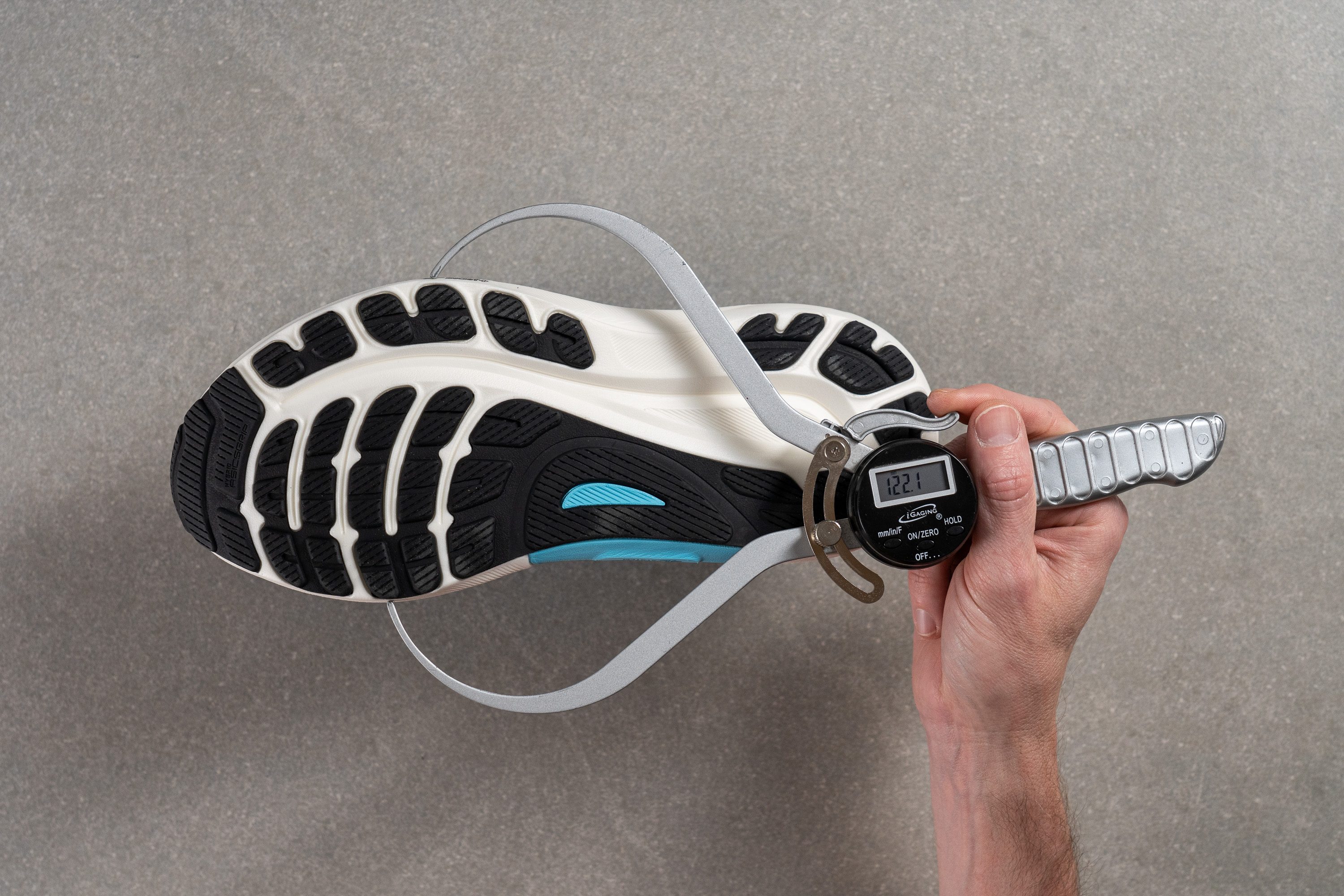
| Gel Kayano 31 | 122.1 mm |
| Average | 114.4 mm |
Midsole width - heel
From the forefoot to the heel, the Kayano barely narrows, resulting in a rectangular-shaped shoe that, as we mentioned earlier, is incredibly stable but lacks agility. We felt this trade-off immediately even during our first strides with the shoe.
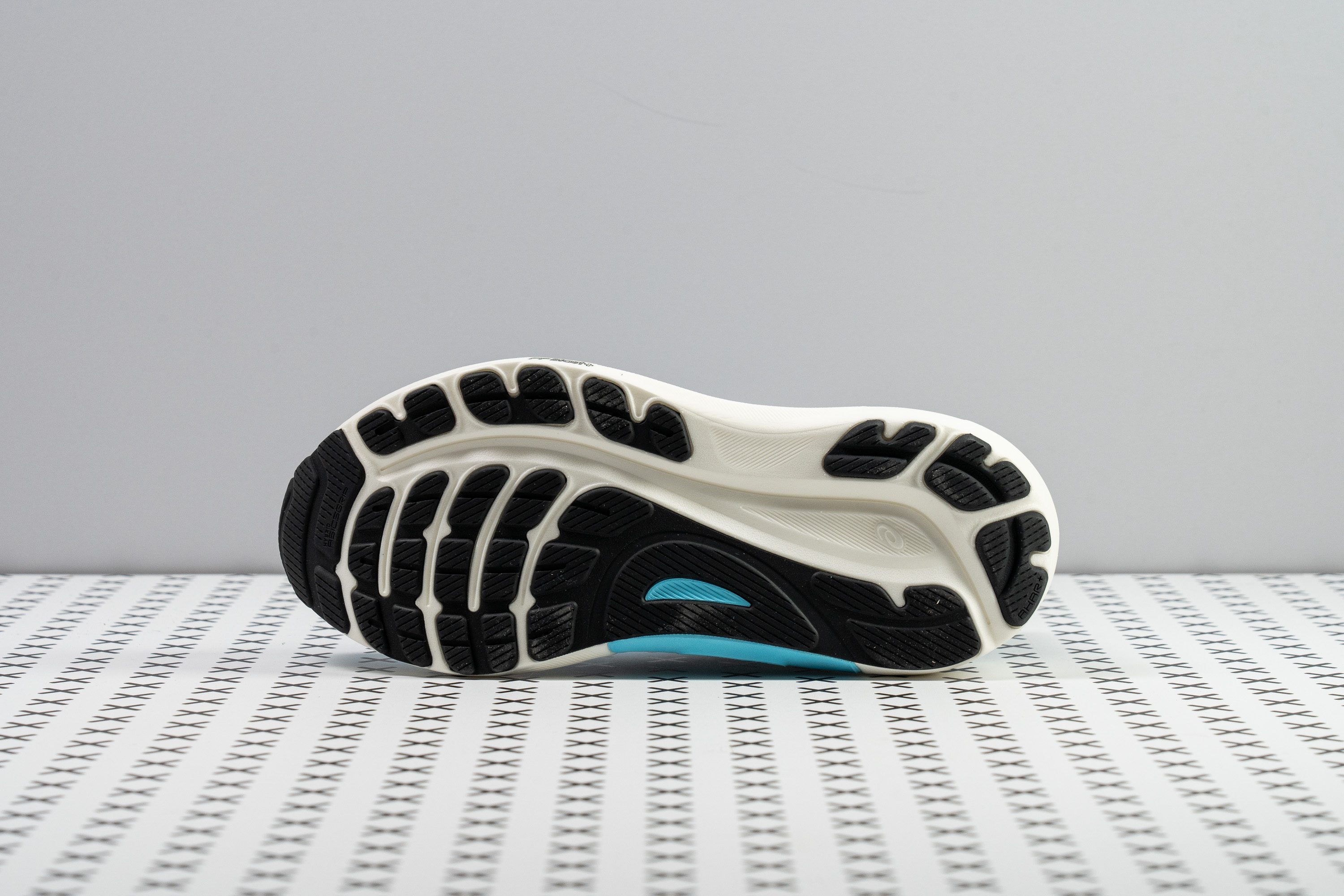
We measured the heel width at 97.6 mm, which is less impressive than the forefoot measurement yet still very wide!
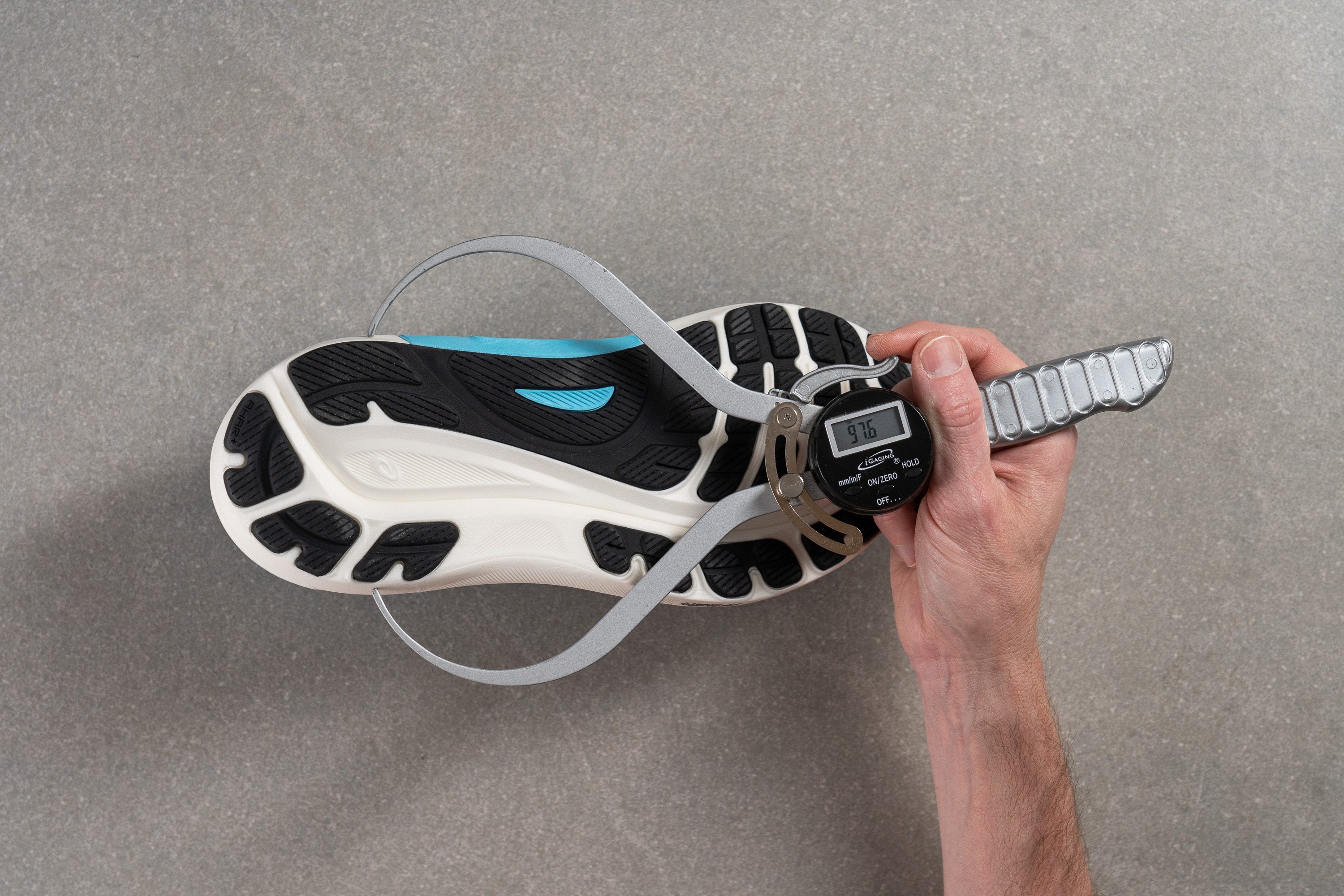
| Gel Kayano 31 | 97.6 mm |
| Average | 90.6 mm |
4D Guidance System
After achieving great success with its predecessor, ASICS continues to utilise their proprietary 4D Guidance System, which subtly corrects overpronation in a non-intrusive and effective manner.
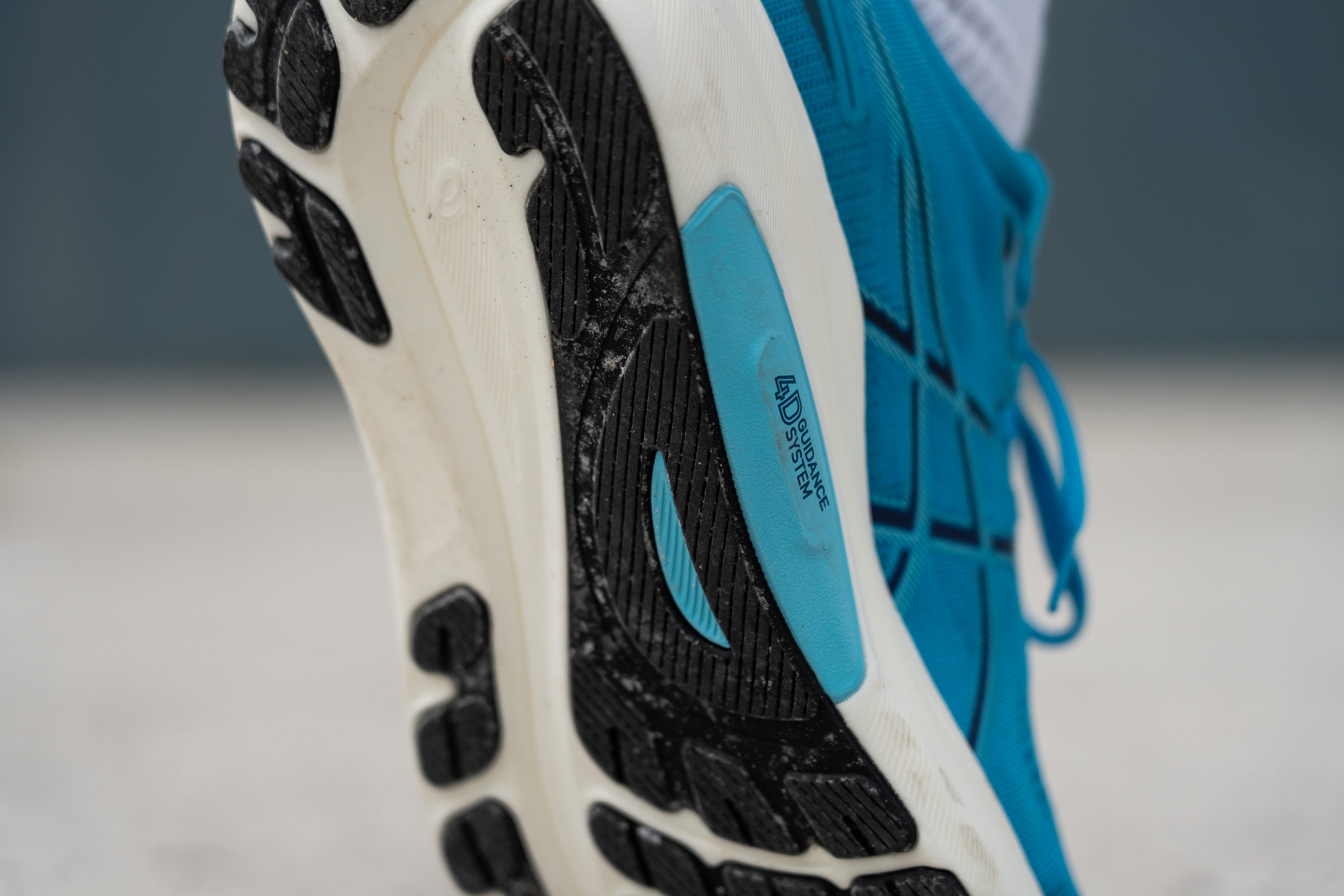
We noticed it's slightly altered from last year's version, now positioned slightly higher, enhancing its effectiveness for those with need of support. In our experience, thanks to this innovative system, few stability shoes can match the natural feel of the Kayano 31.
Durability
Toebox durability
We've already demonstrated that the Kayano 31 performs very well in breathability. Often, shoes that boast good airflow suffer from decreased durability in the upper, as ventilation holes can weaken the structure.
Fortunately, the secondary layer we previously discussed performed admirably, allowing the Kayano to earn a solid 4/5 rating from us. Then, there's nothing concerning here—on to the next test!
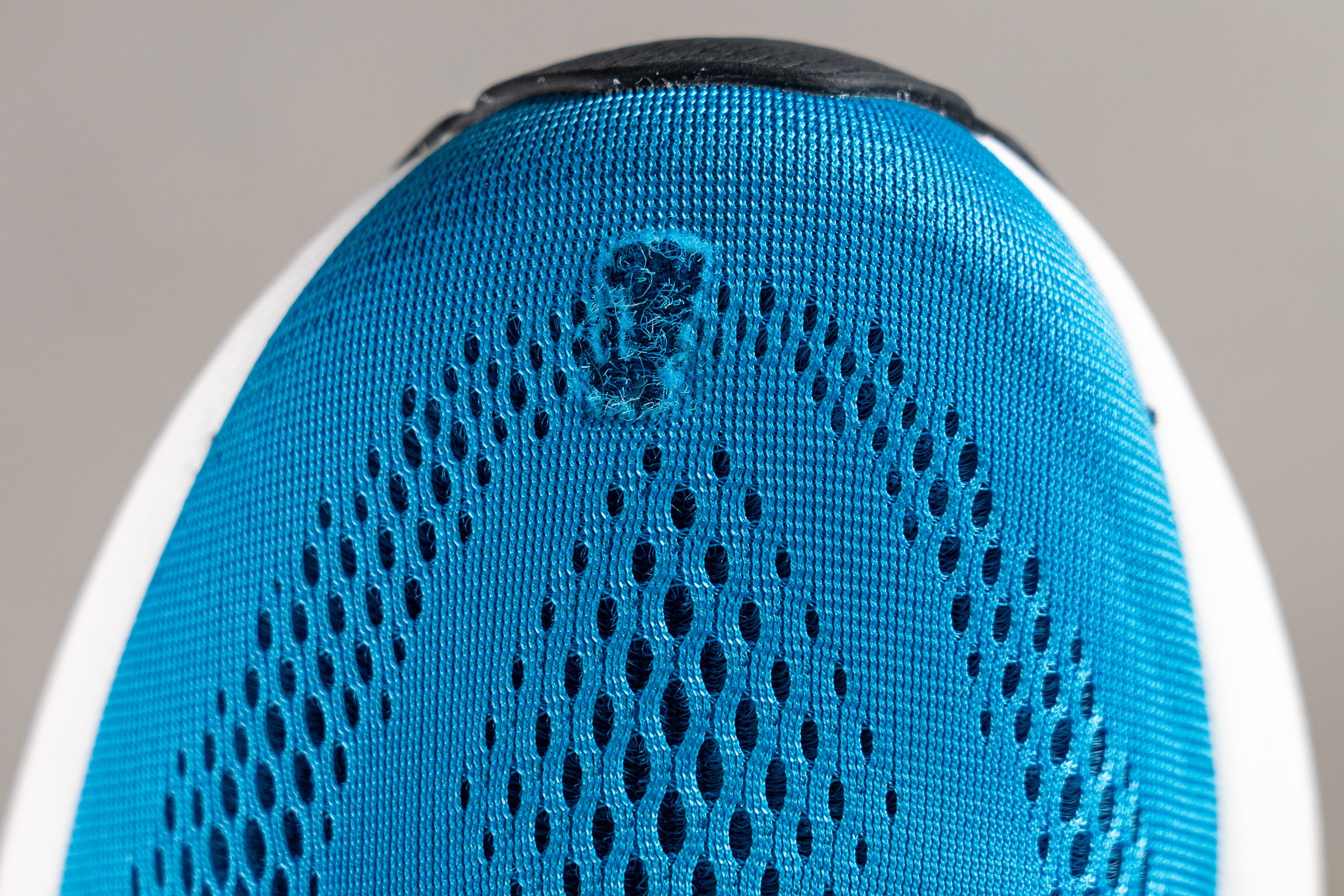
| Gel Kayano 31 | 4 |
| Average | 2.6 |
Heel padding durability
The weakest point of the Kayano 30 was its lacklustre heel padding—it received a dismal 1/5 from us after the Dremel test. Given that the Kayano 31 is more of an incremental upgrade rather than a complete overhaul, we had some initial reservations.
However, we were pleased to discover that they've fixed this issue effectively. The Kayano 31 significantly improved its performance in this area to a solid 4/5, surpassing most running shoes on the market and eliminating any concerns for those who frequently experience wear in the Achilles area of their shoes.
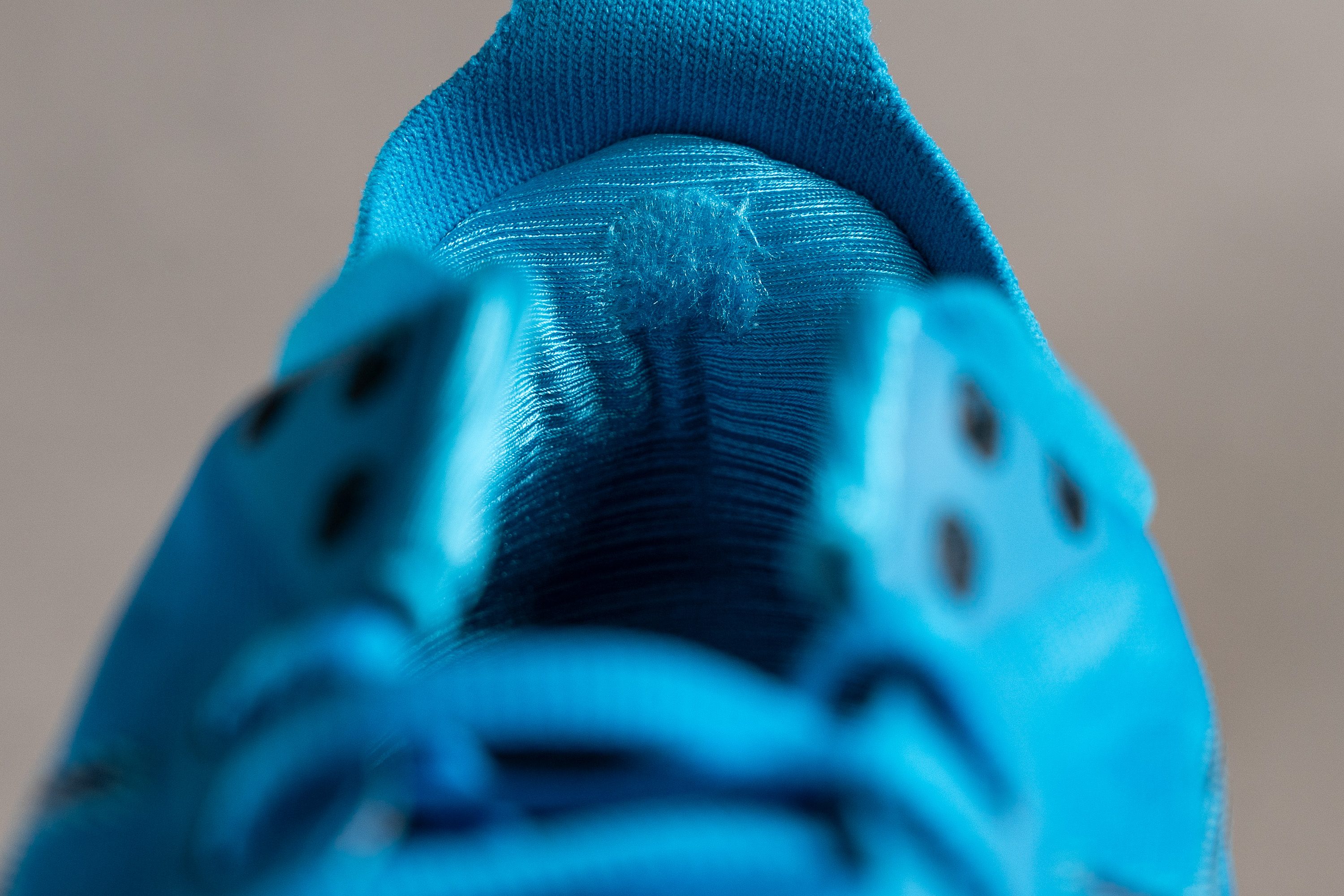
| Gel Kayano 31 | 4 |
| Average | 3.4 |
Outsole hardness
After three consecutive successes with breathability and upper durability, we shifted our focus to the outsole—a critical area, particularly for heavier runners.

First, we measured the hardness of the Hybrid ASICSGRIP outsole, which registered a robust 88.3 HC.
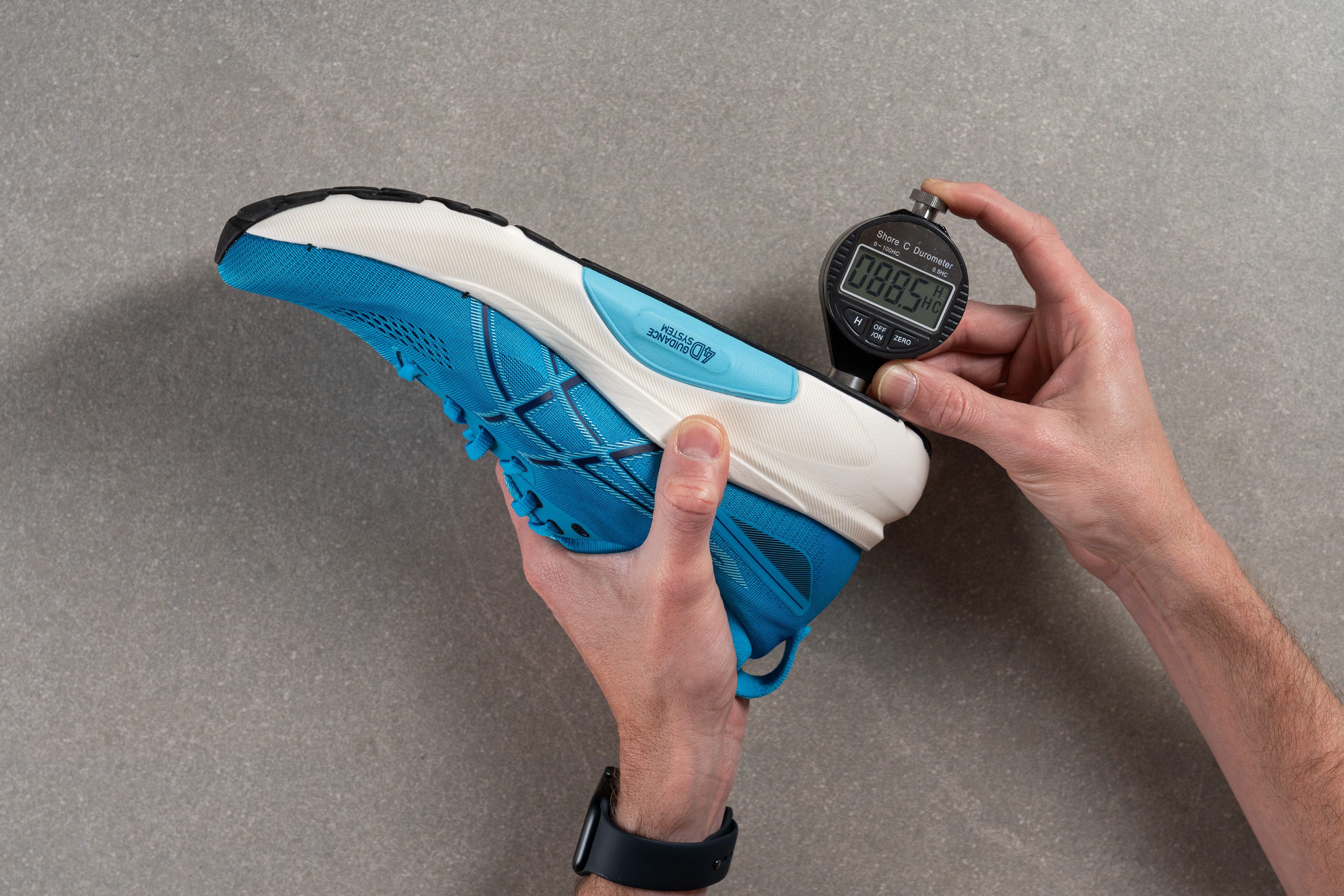
| Gel Kayano 31 | 88.3 HC |
| Average | 79.2 HC |
Outsole durability
In our last dance with the Dremel, we anticipated an interesting duel against the ASICSGRIP outsole.
A 1.1 mm dent wasn't as impressive as our earlier tests, yet we think it's a decent outcome and didn't leave us overly concerned. However, we had hoped for better durability given the outsole's hardness.
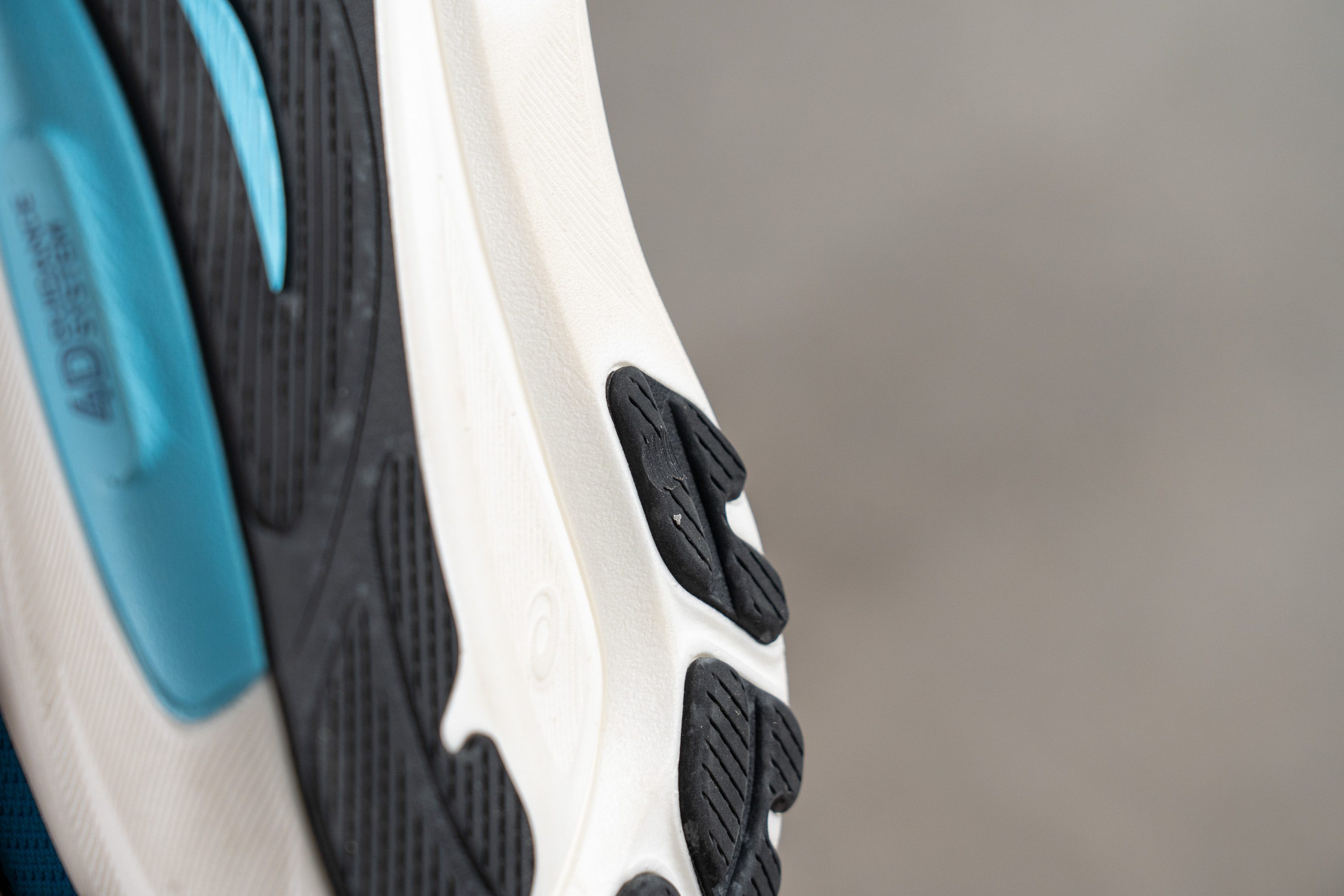
| Gel Kayano 31 | 1.1 mm |
| Average | 1.1 mm |
Outsole thickness
ASICS clearly conducted their own tests and realised that the rubber wasn't as durable as others, which explains why we found a significant thickness of 4.0 mm.
This extra thickness is good news as it compensates for the lesser durability of ASICSGRIP. However, it also slightly dulls the ride, making it feel akin to some door-to-trail shoes on road surfaces.
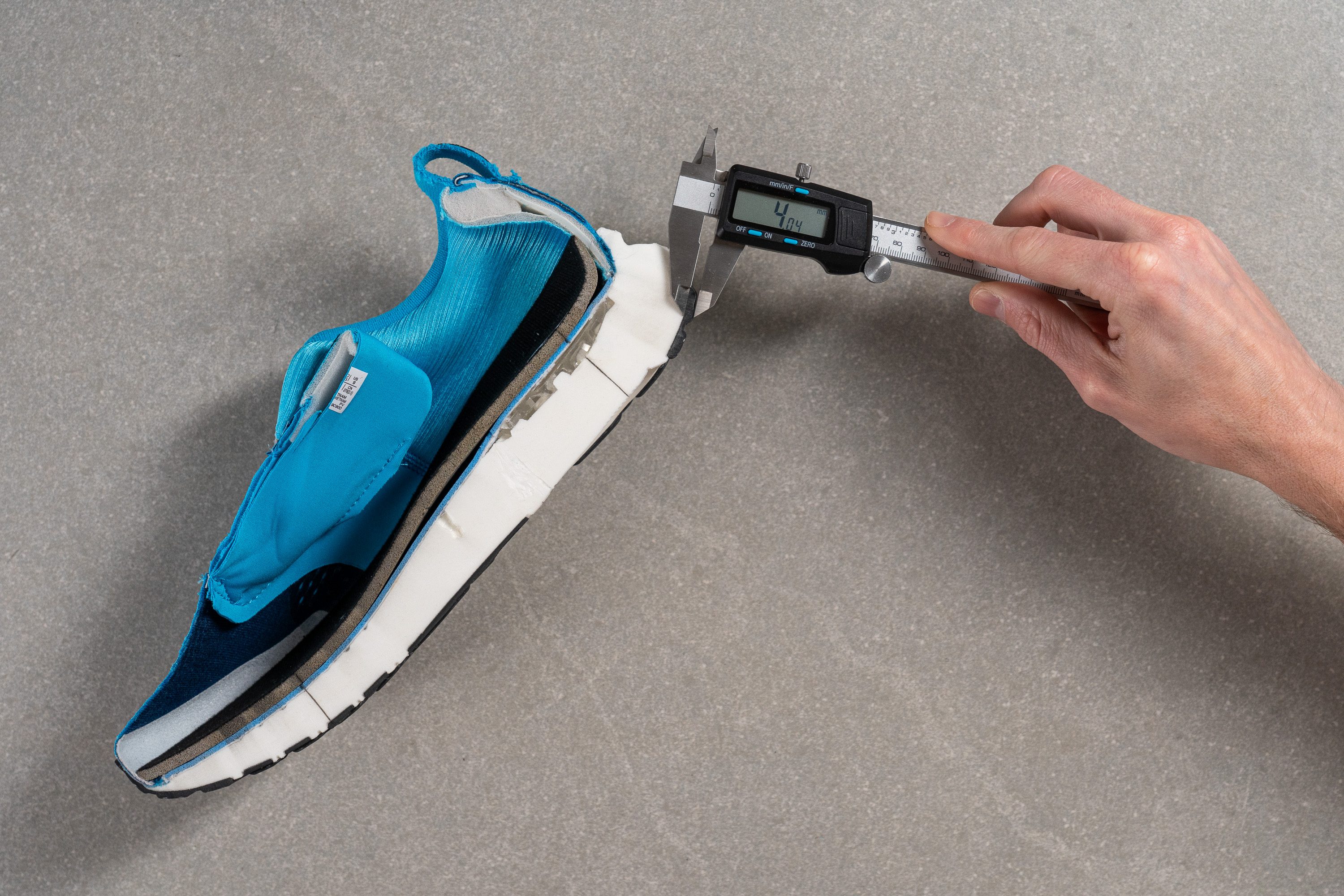
| Gel Kayano 31 | 4.0 mm |
| Average | 3.2 mm |
Misc
Insole thickness
Within the shoe, we encountered an EVA insole boasting an average 4.7 mm of thickness.
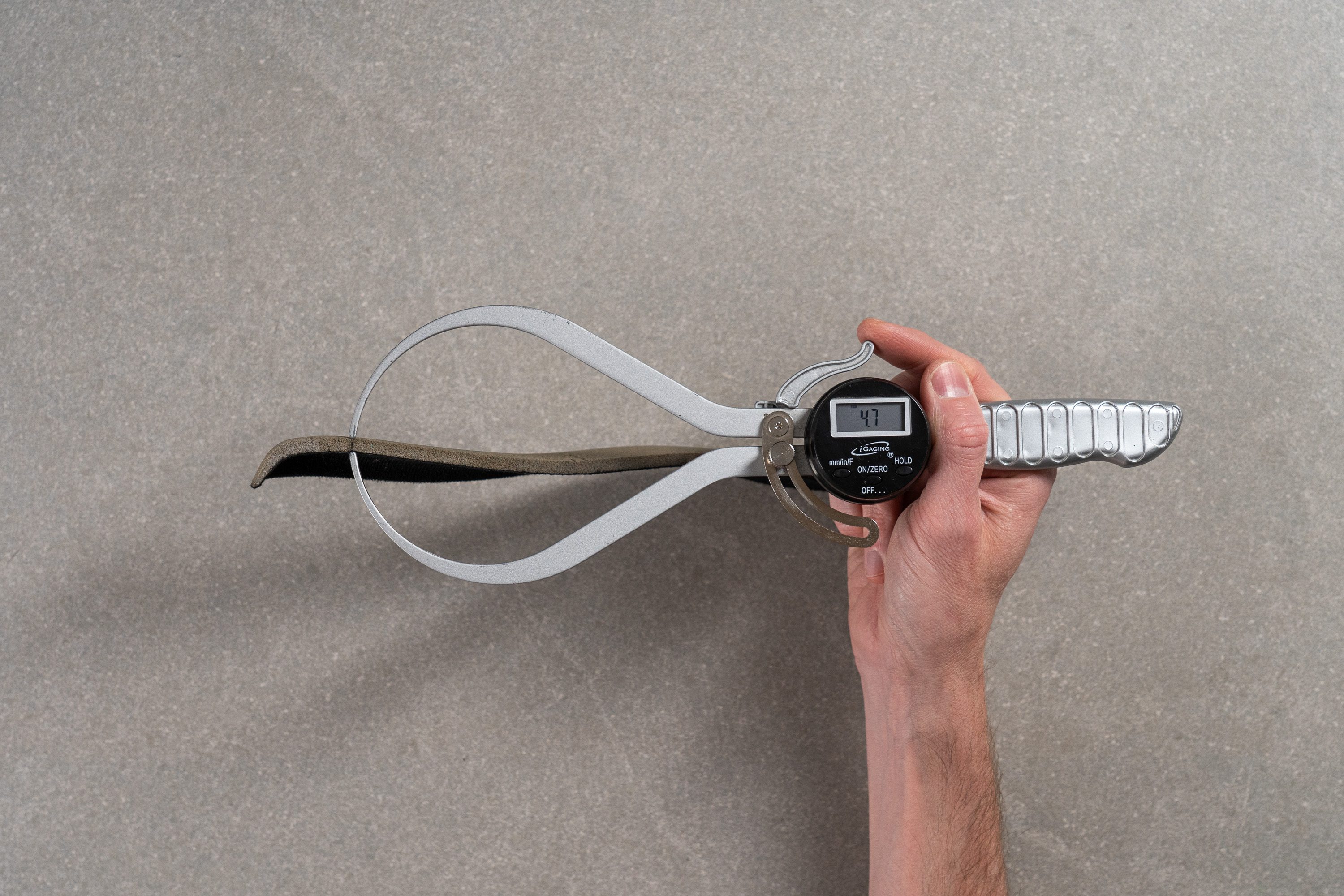
| Gel Kayano 31 | 4.7 mm |
| Average | 4.5 mm |
Removable insole
We found that the Kayano 31 is equipped with an Ortholite X-55 insole, which ranks among the top insoles in the market. However, like most products from Ortholite, it tends to run a bit hot, but fortunately, since it’s not glued, you can easily replace it with another insole in summer.
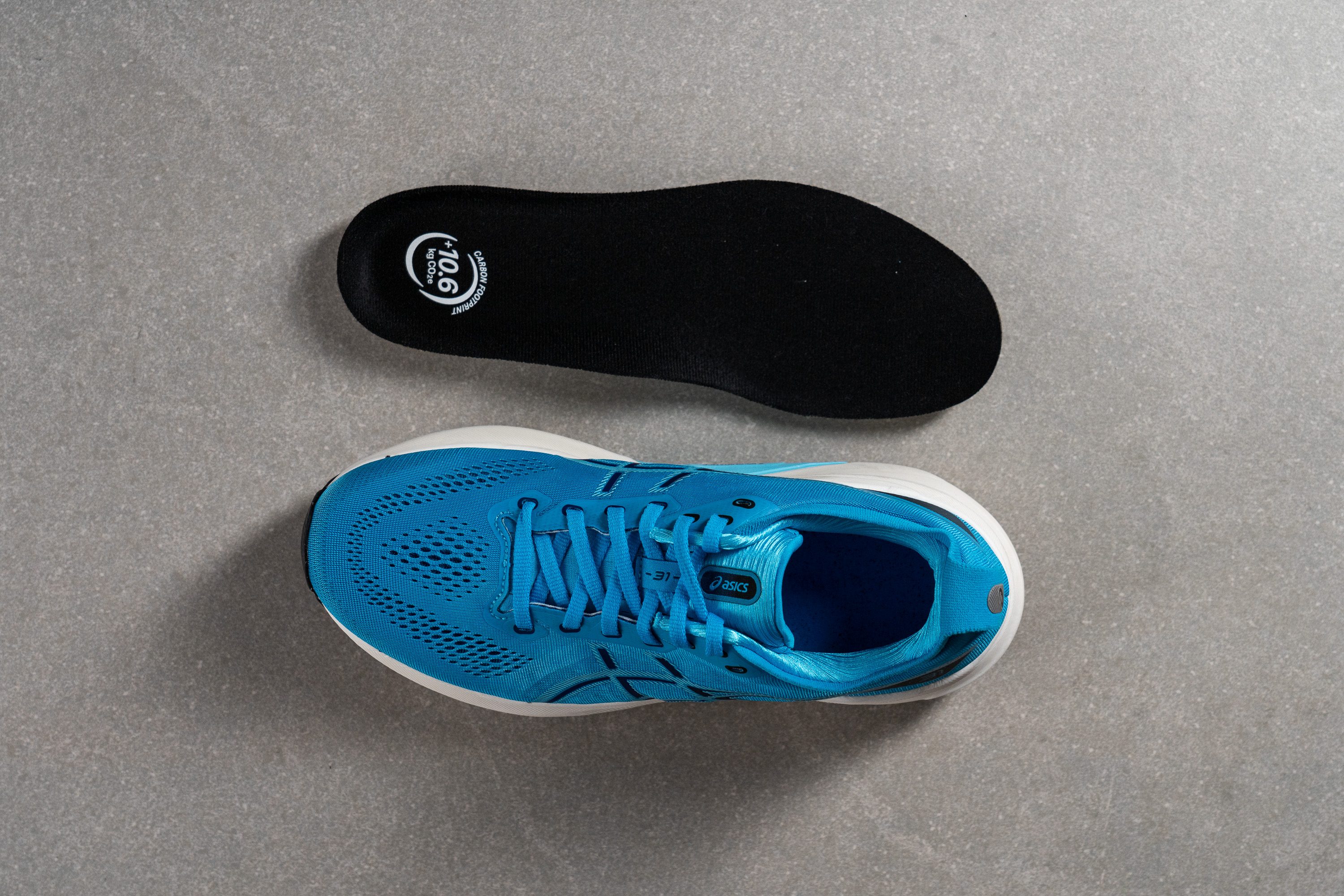
| Gel Kayano 31 | Yes |
Midsole softness in cold (%)
After chilling the shoe for 20 minutes in the freezer, we tested the softness again and noted a 25.6% decrease.
It's crucial to remember, however, that despite being mixed with OBC, FF Blast+ ECO primarily consists of EVA. As a result, its performance in cold temperatures doesn't match that of top-tier PEBA-based foams like FF Turbo and FF Turbo+.
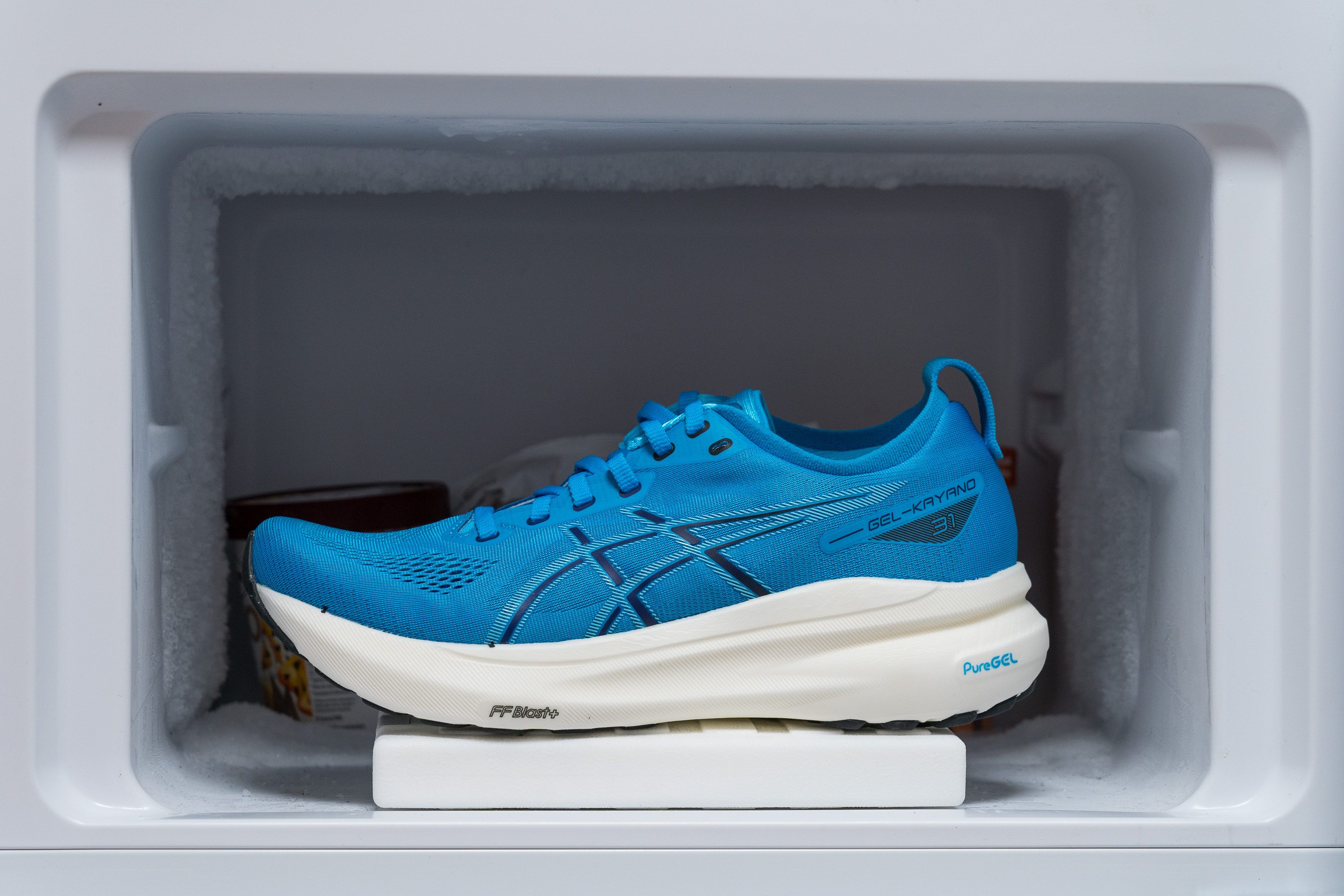
| Gel Kayano 31 | 26% |
| Average | 24% |
Reflective elements
ASICS has followed the same design strategy as the Kayano 30 by placing reflective elements only on the heel of the shoe. However, these elements are now way smaller than before, so we found this to be a bit of a downgrade.
| Gel Kayano 31 | Yes |
Tongue padding
The Kayano 31 prioritises comfort over weight, a fact that became apparent when we measured the tongue's thickness, which came in at a super-plush 8.3 mm.
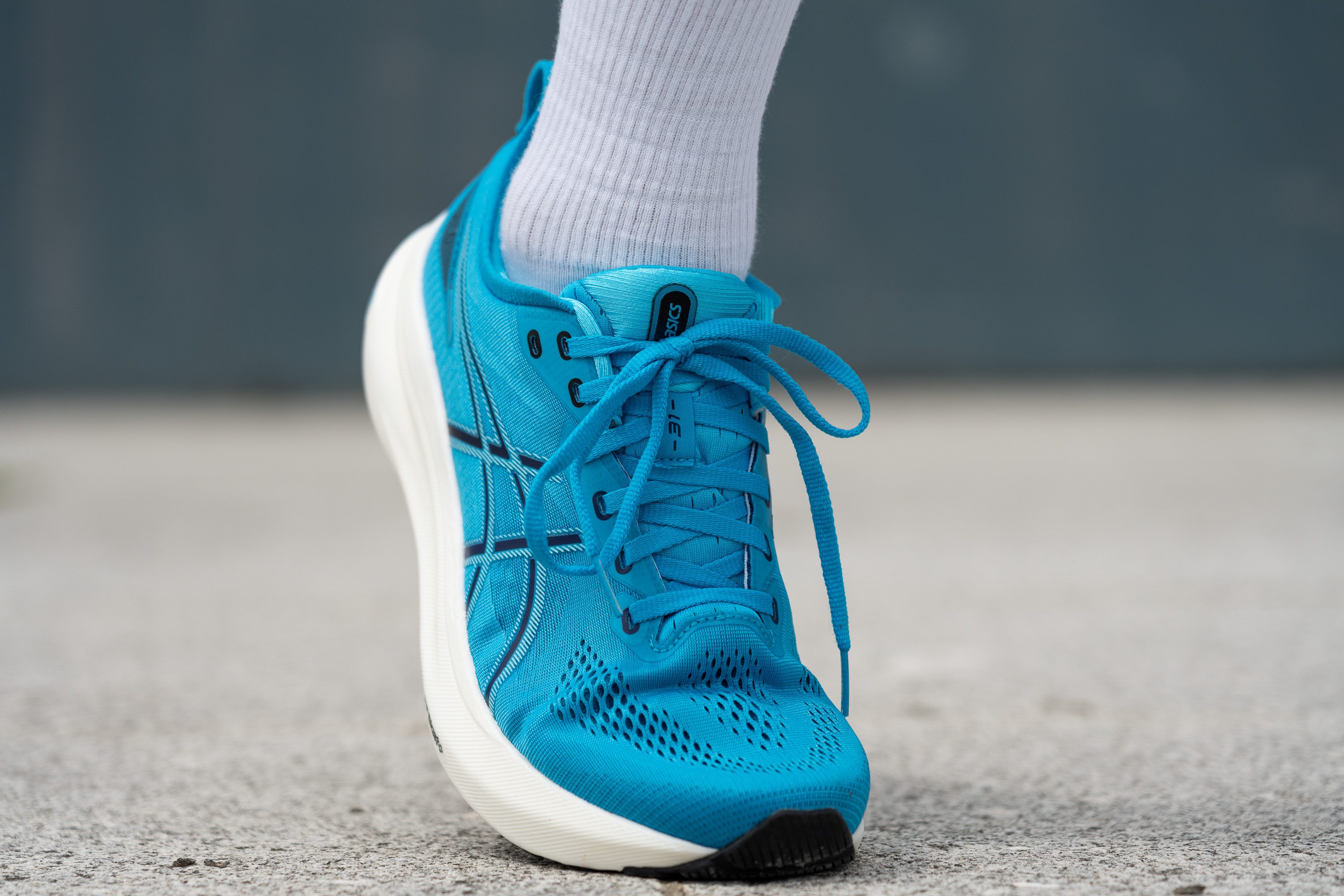
While it might border on excessive for some, we believe individuals who value comfort or frequently experience lace bite will find this shoe's thick tongue to be just awesome.
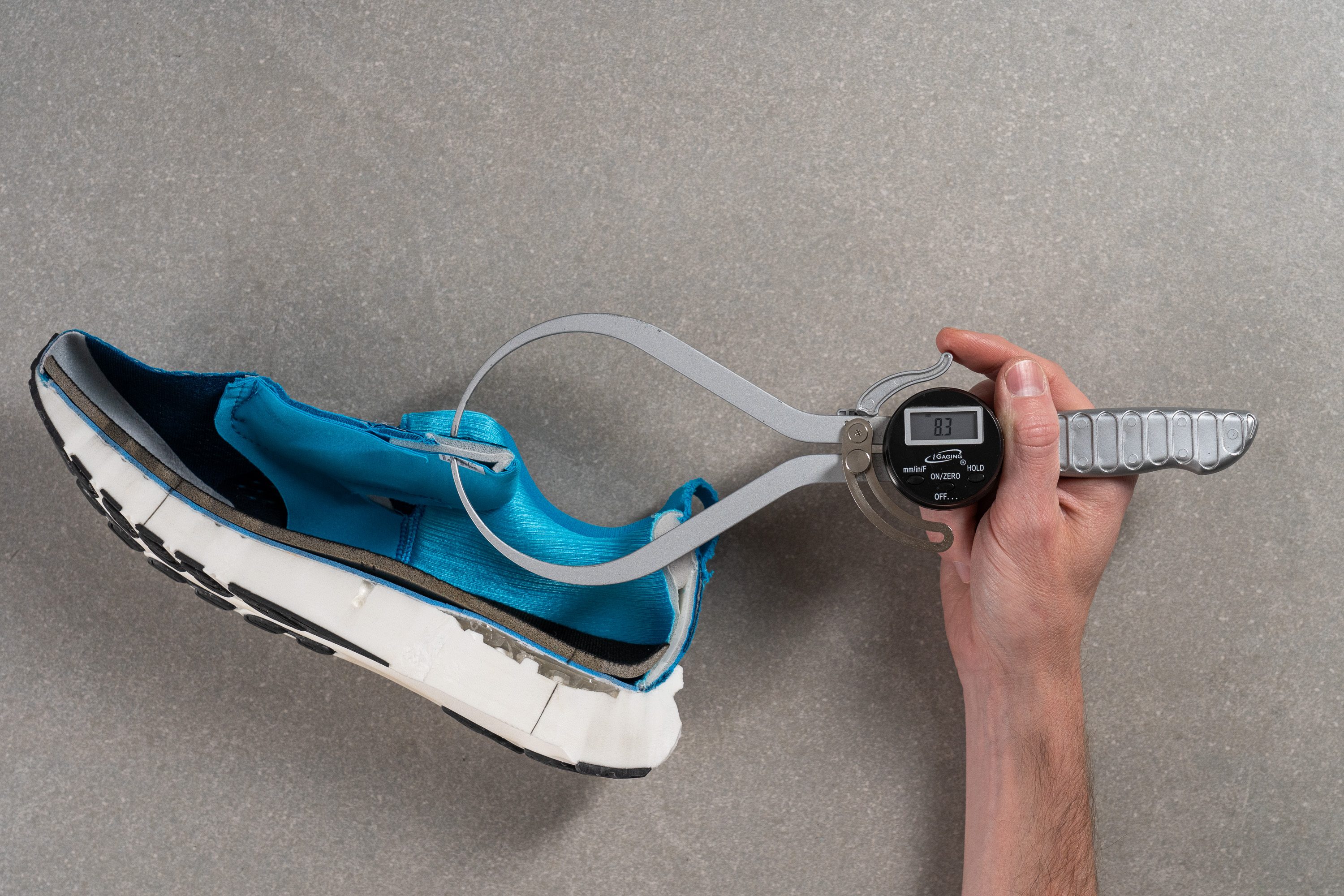
| Gel Kayano 31 | 8.3 mm |
| Average | 5.7 mm |
Tongue: gusset type
Aiming for the perfect blend of comfort and secure fit, the tongue of the K31 features a semi-gusseted design. We consider this to be the ideal solution for the Kayano because of its inherently high weight.
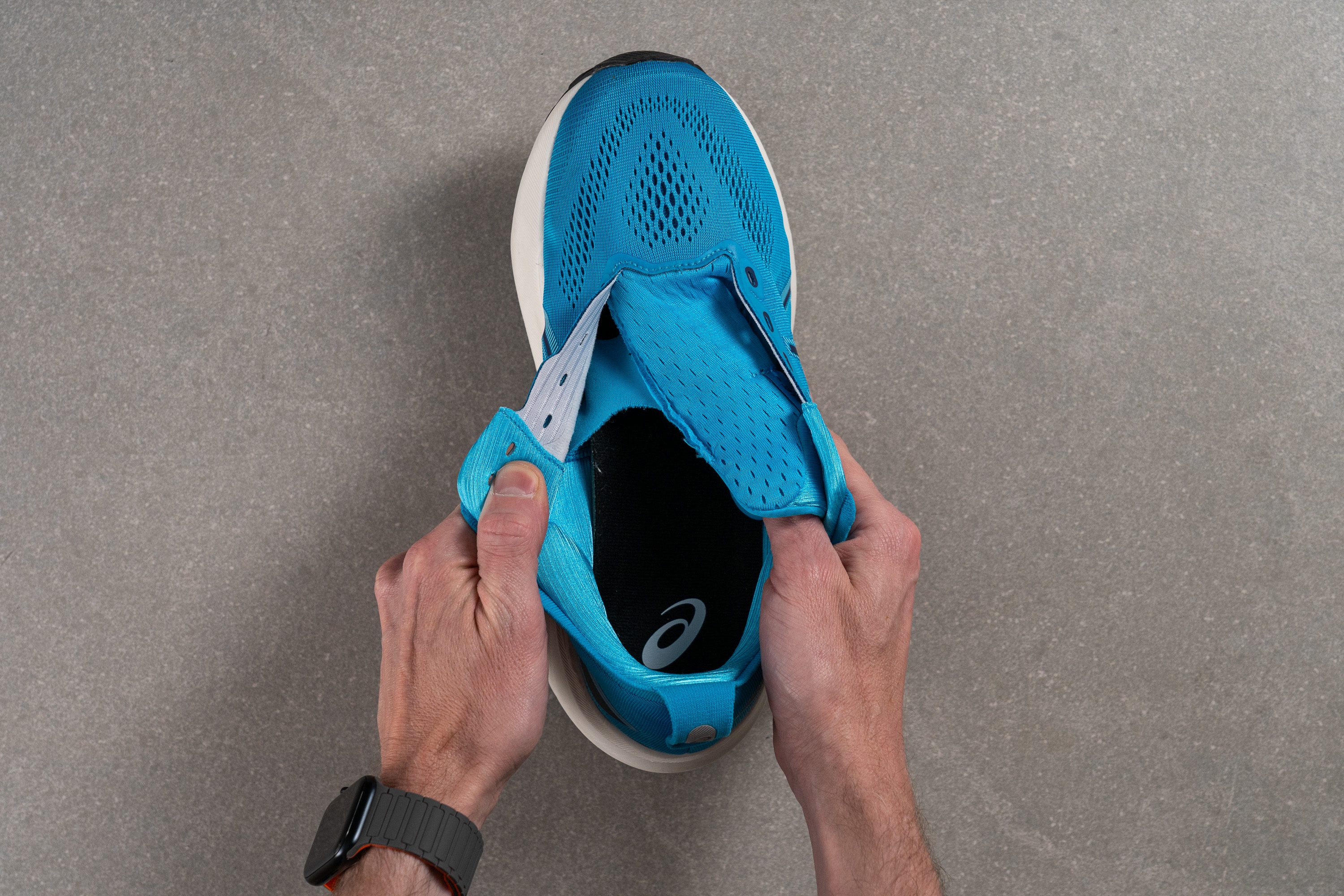
| Gel Kayano 31 | Both sides (semi) |
Heel tab
ASICS has been adding finger-loop heel tabs to most of their top-end running shoes, and the Kayano, previously without this feature in v30, now includes it in version 31. We found this addition useful for easily slipping our feet into the shoe, and it looks cool!
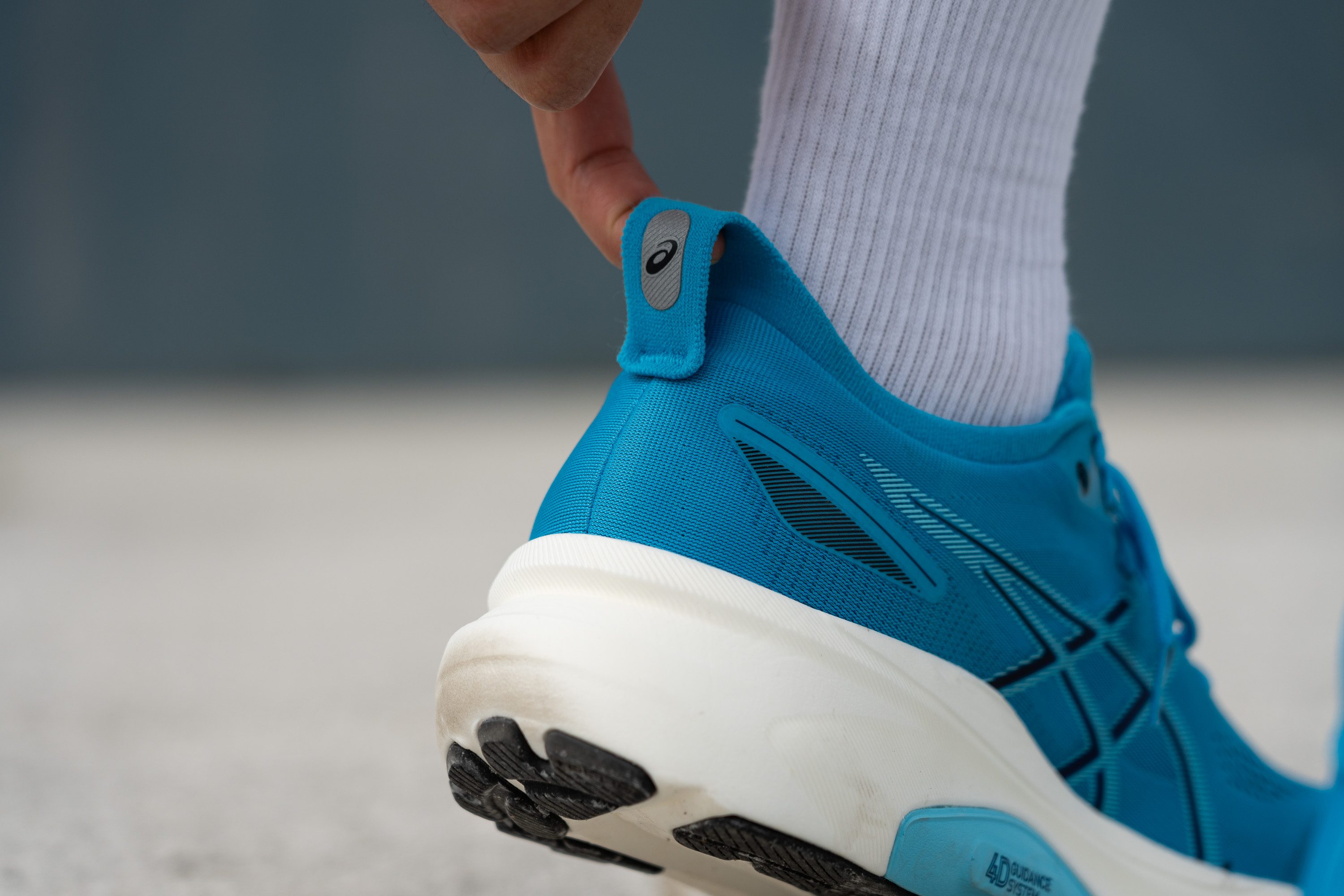
| Gel Kayano 31 | Finger loop |

